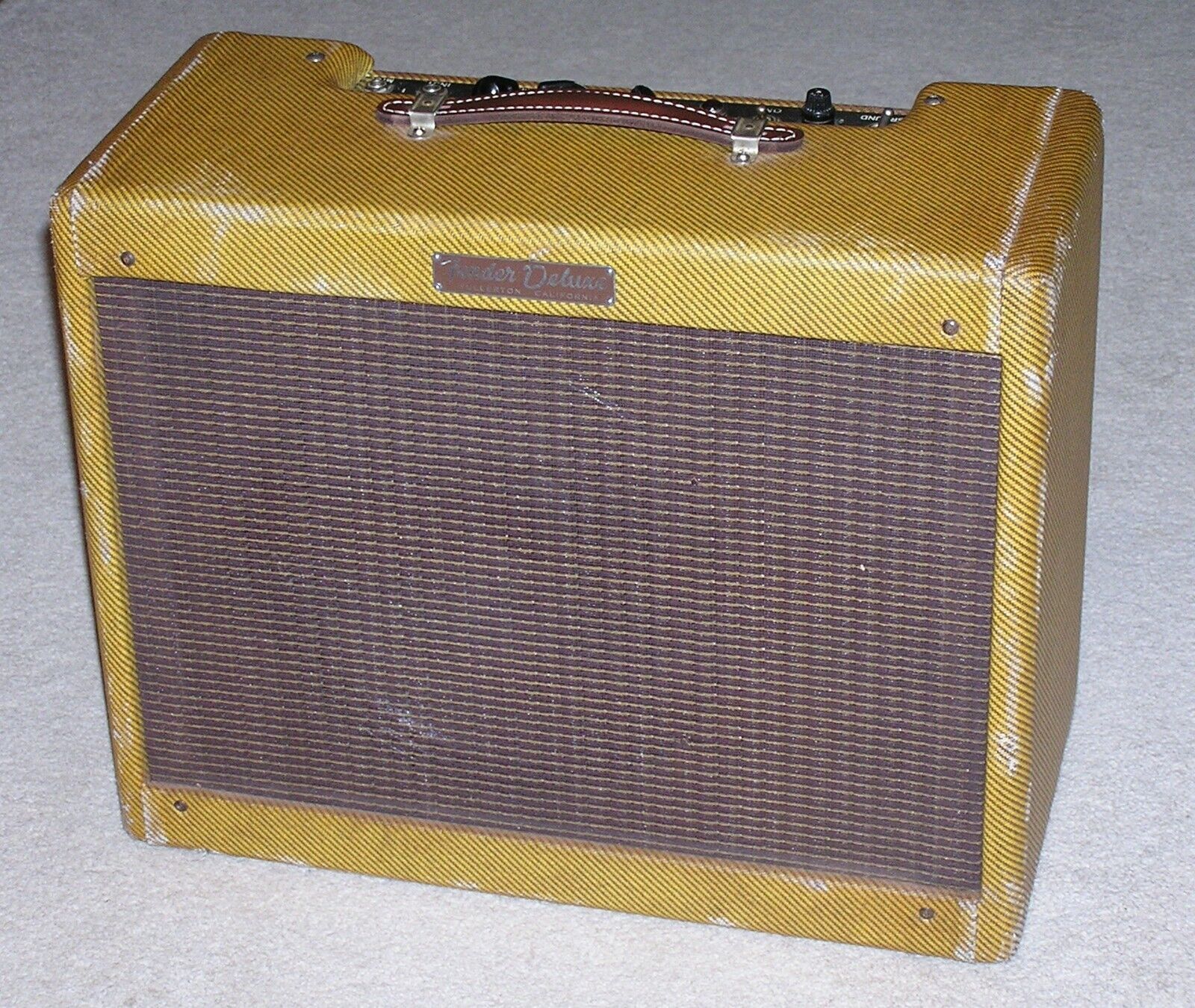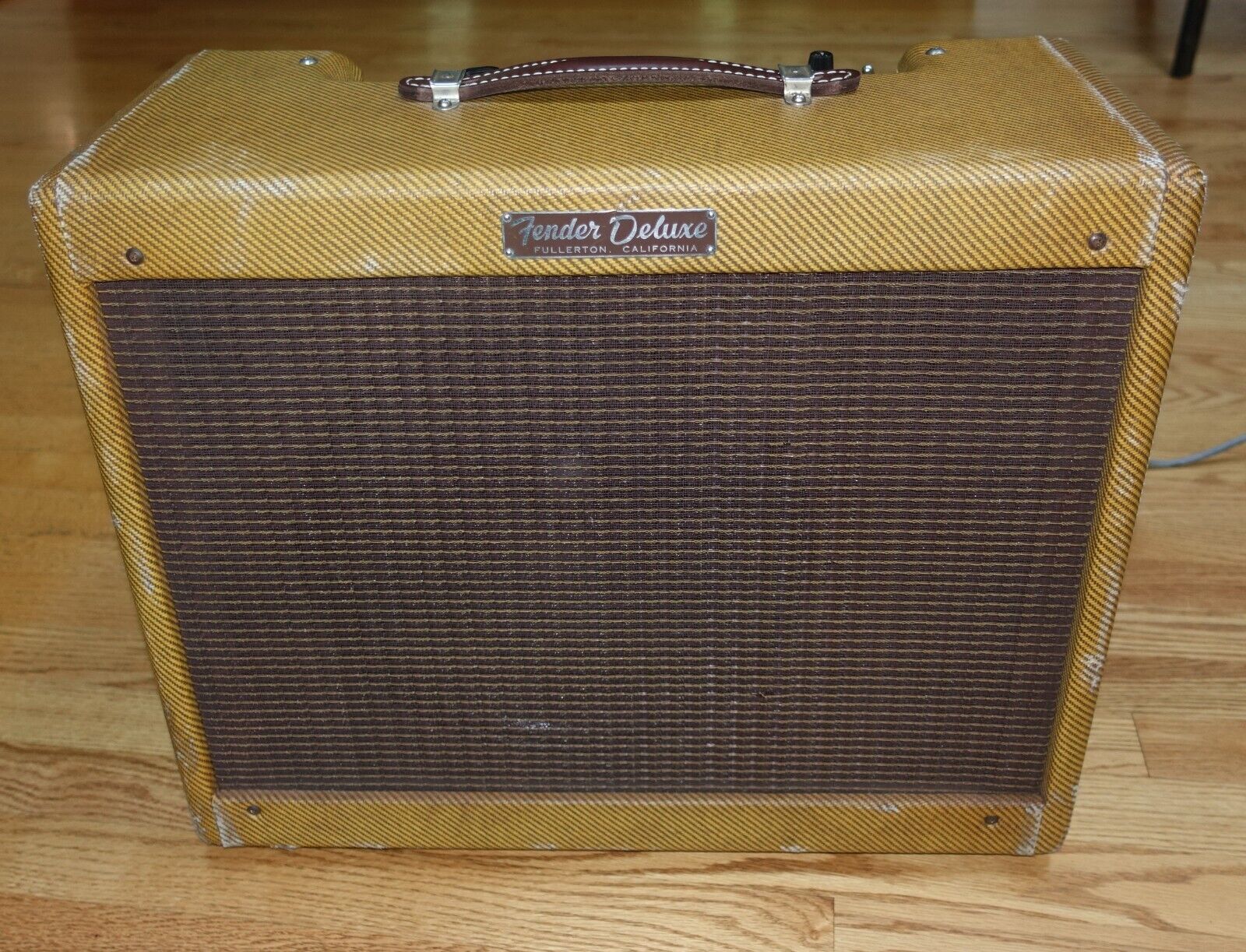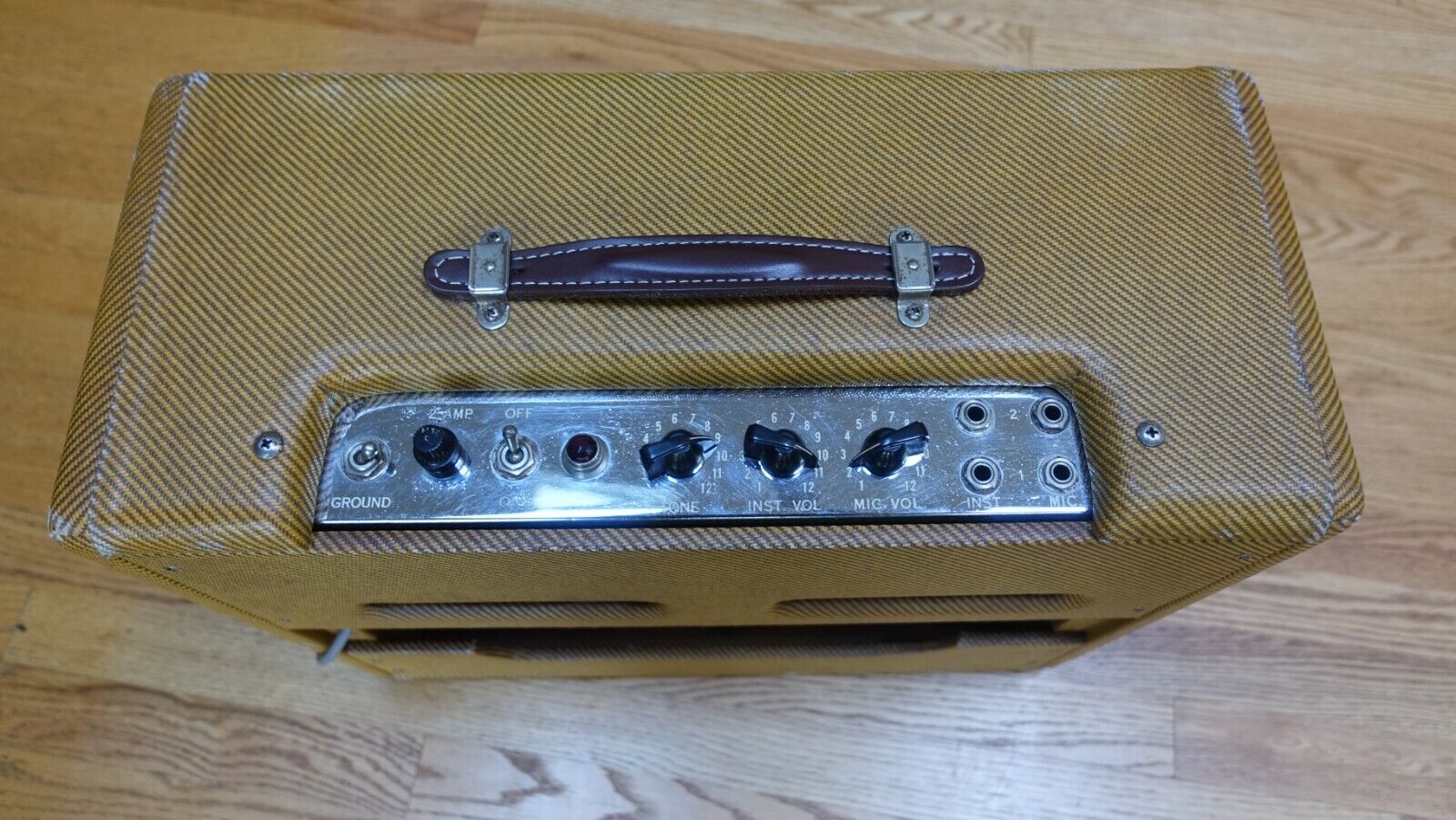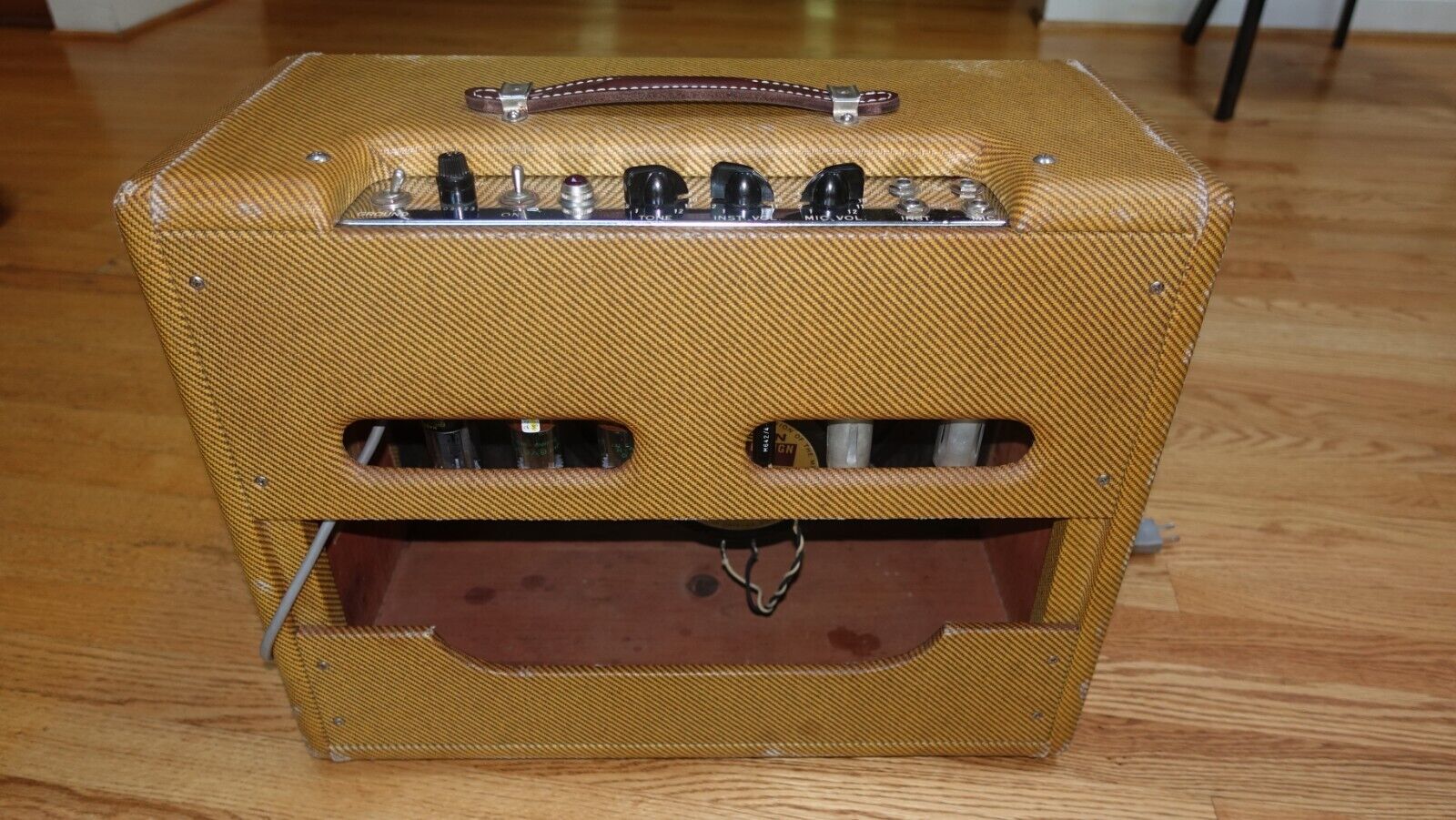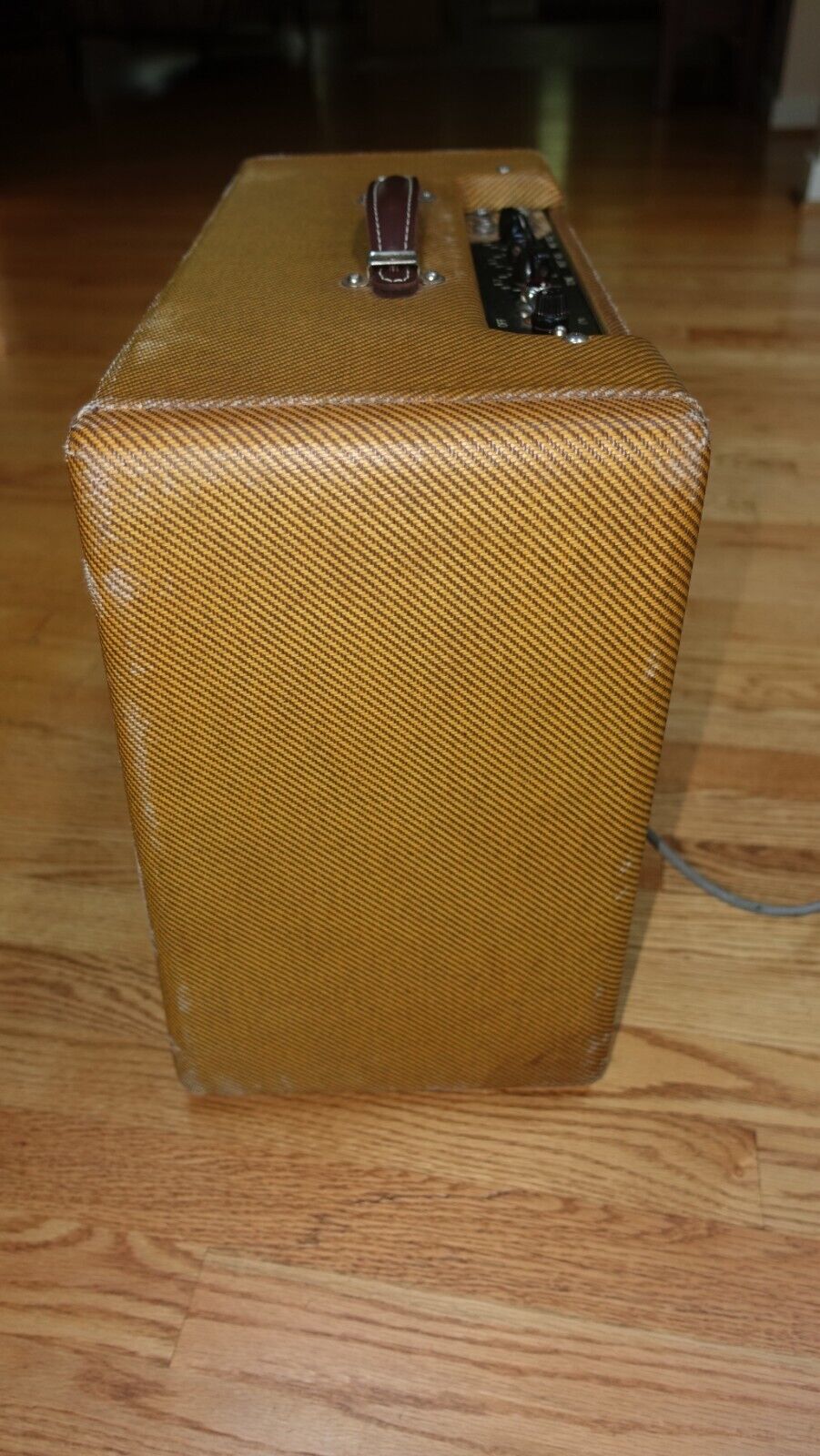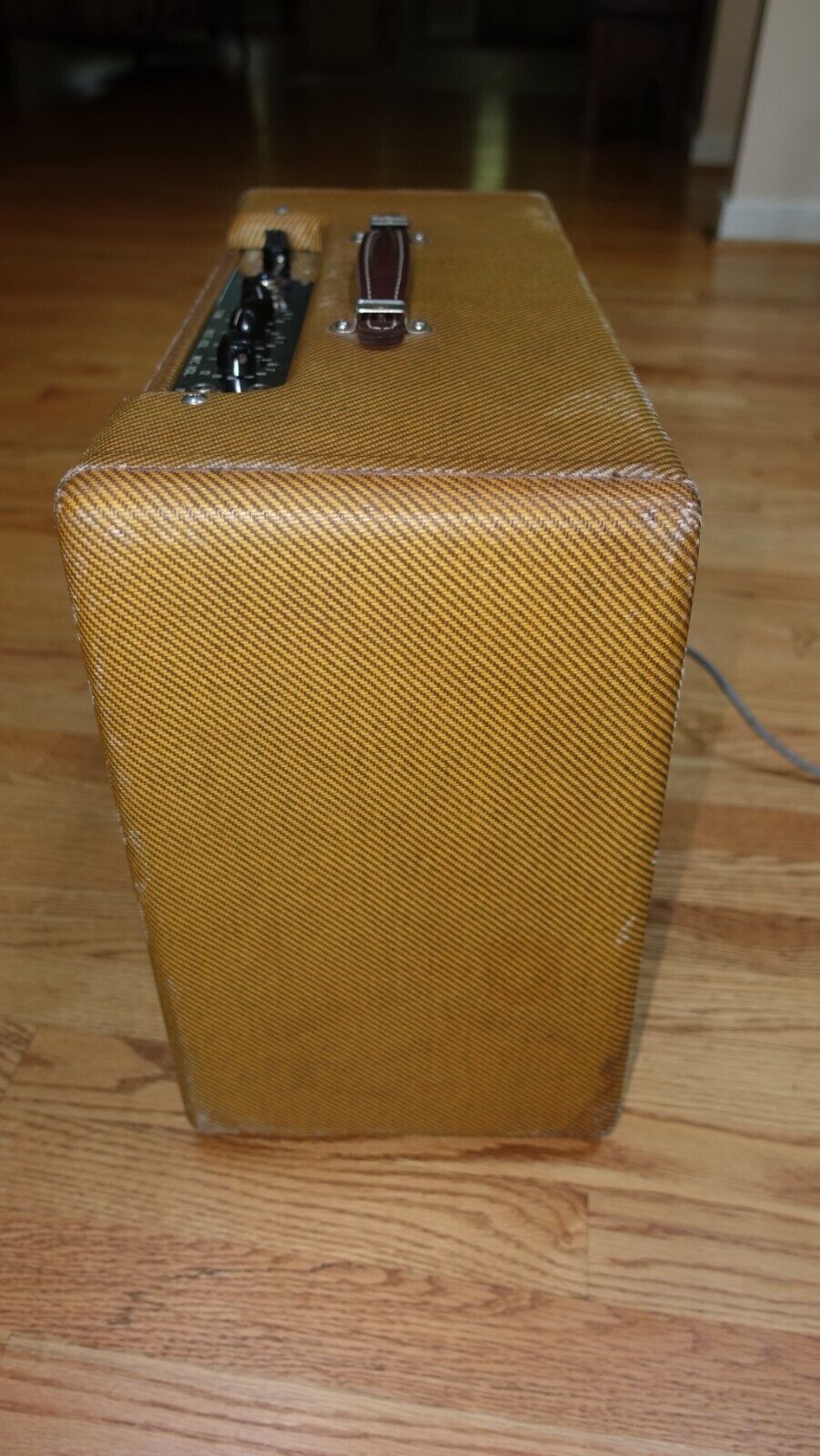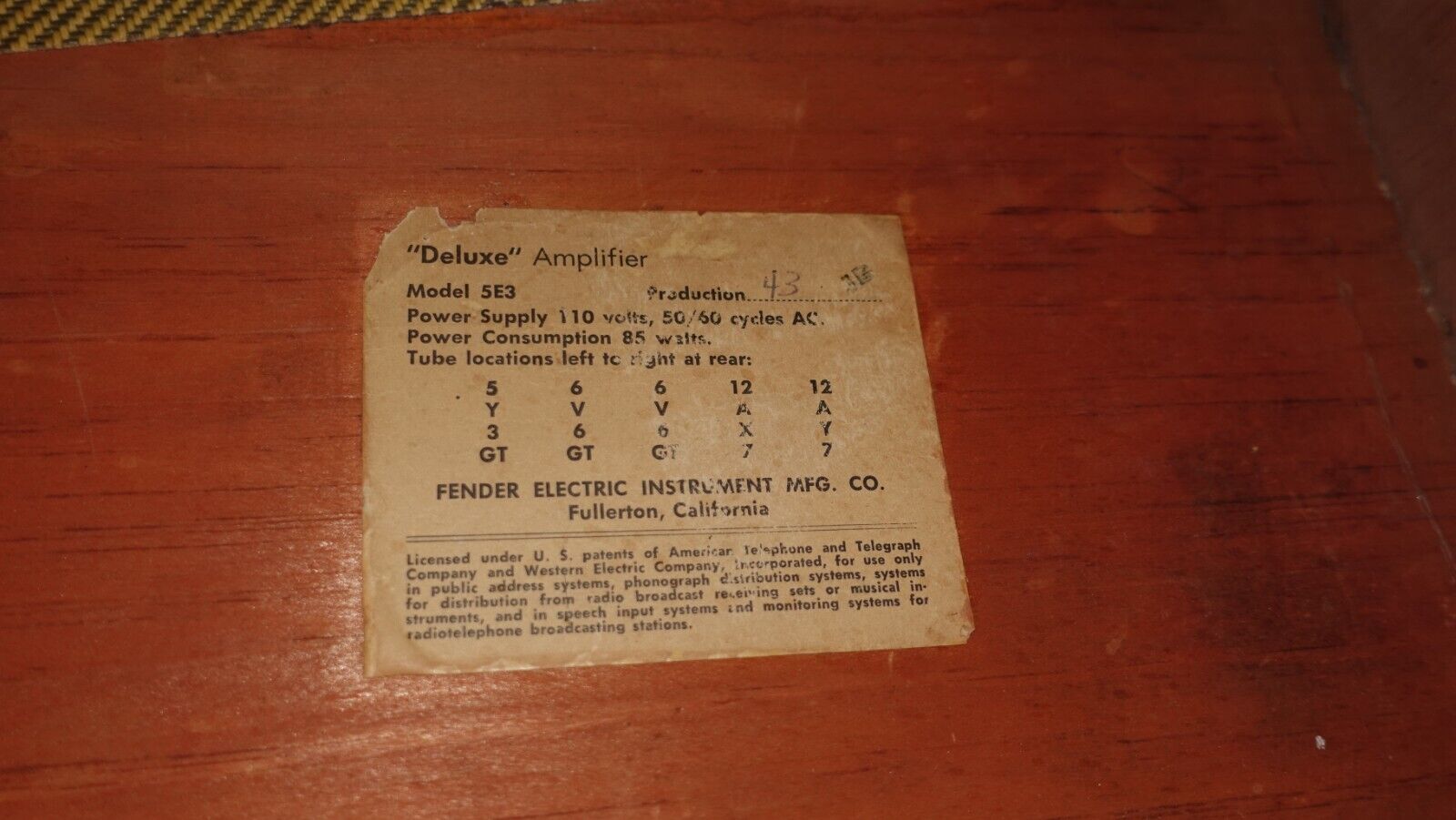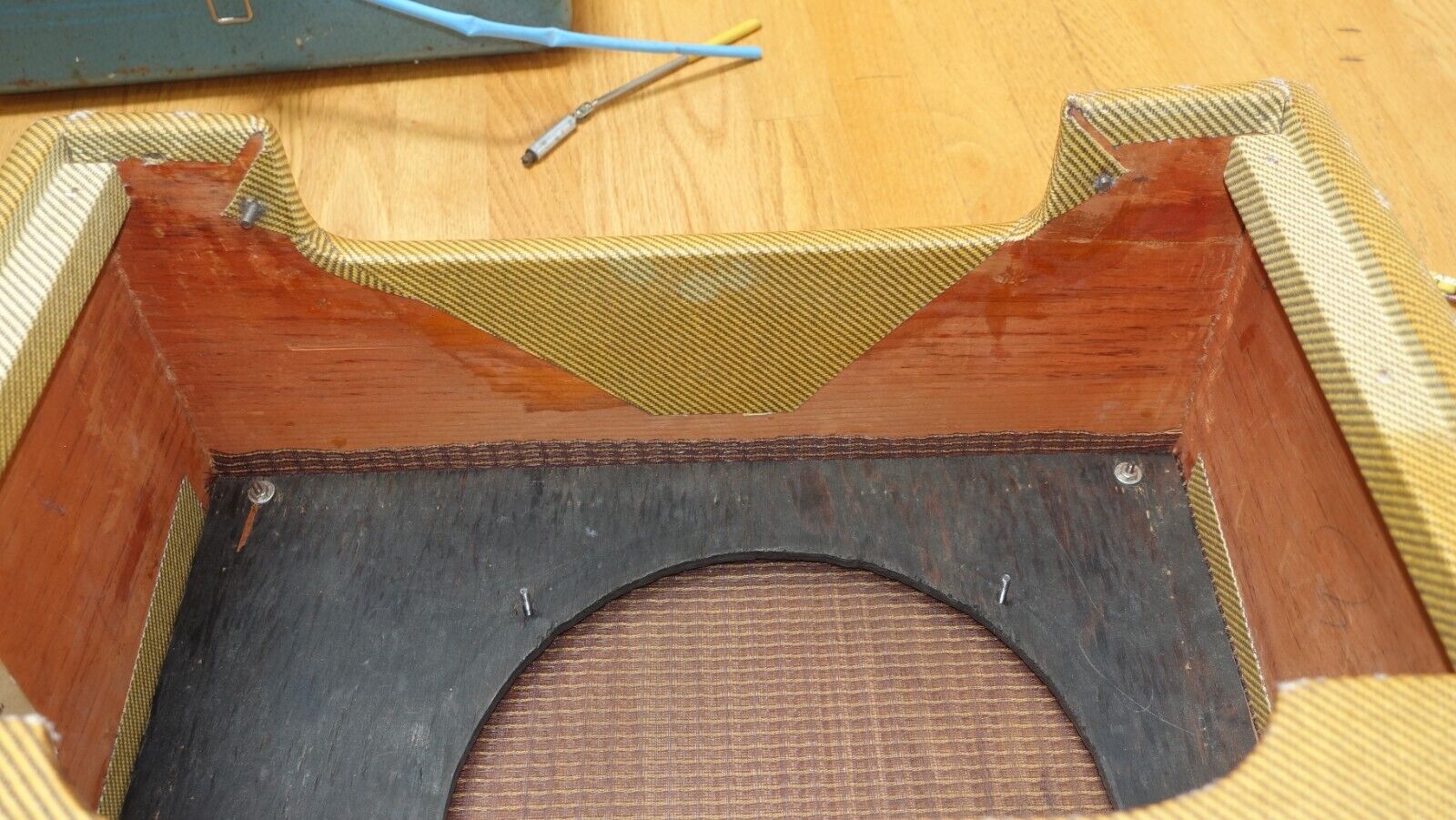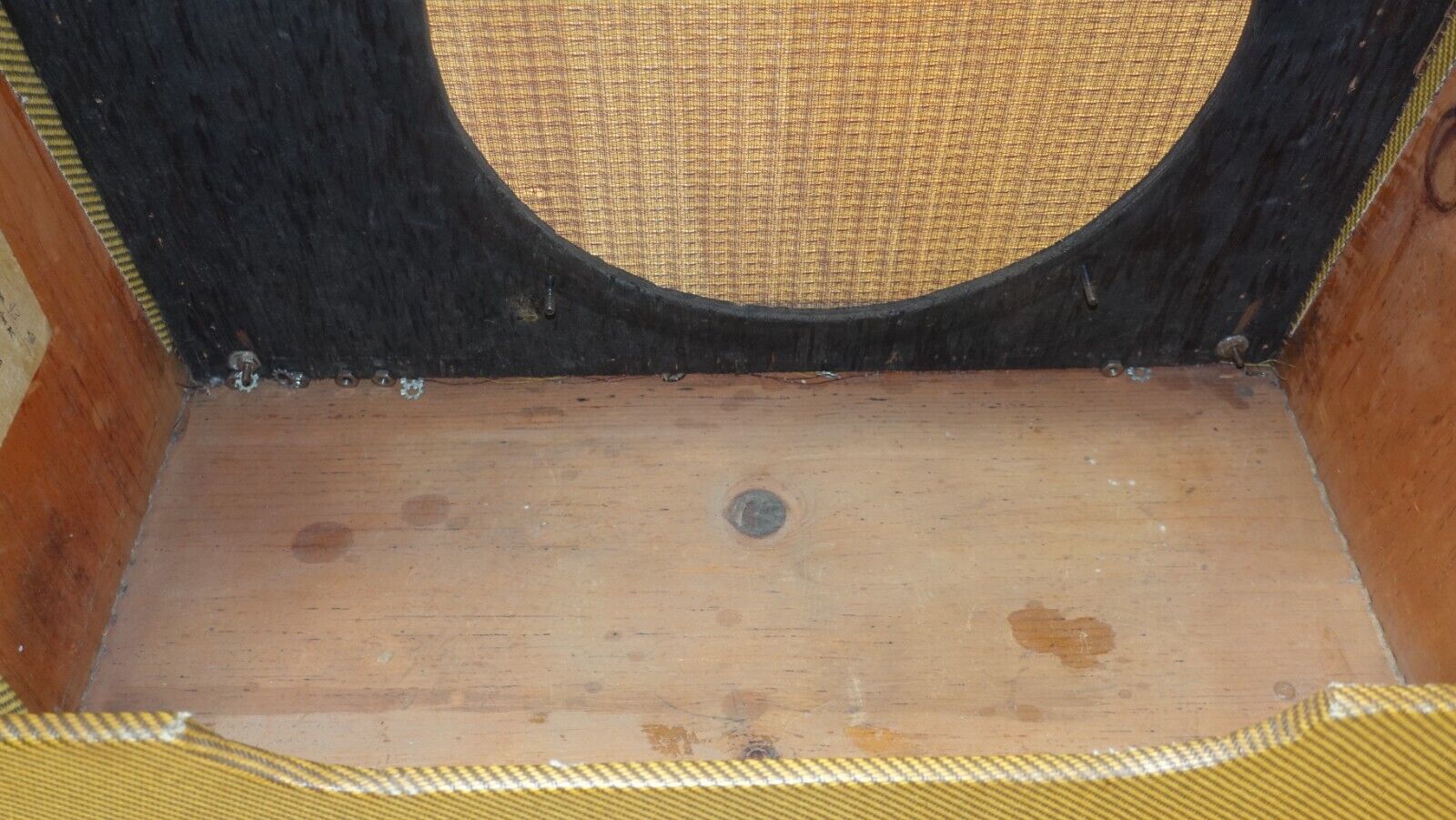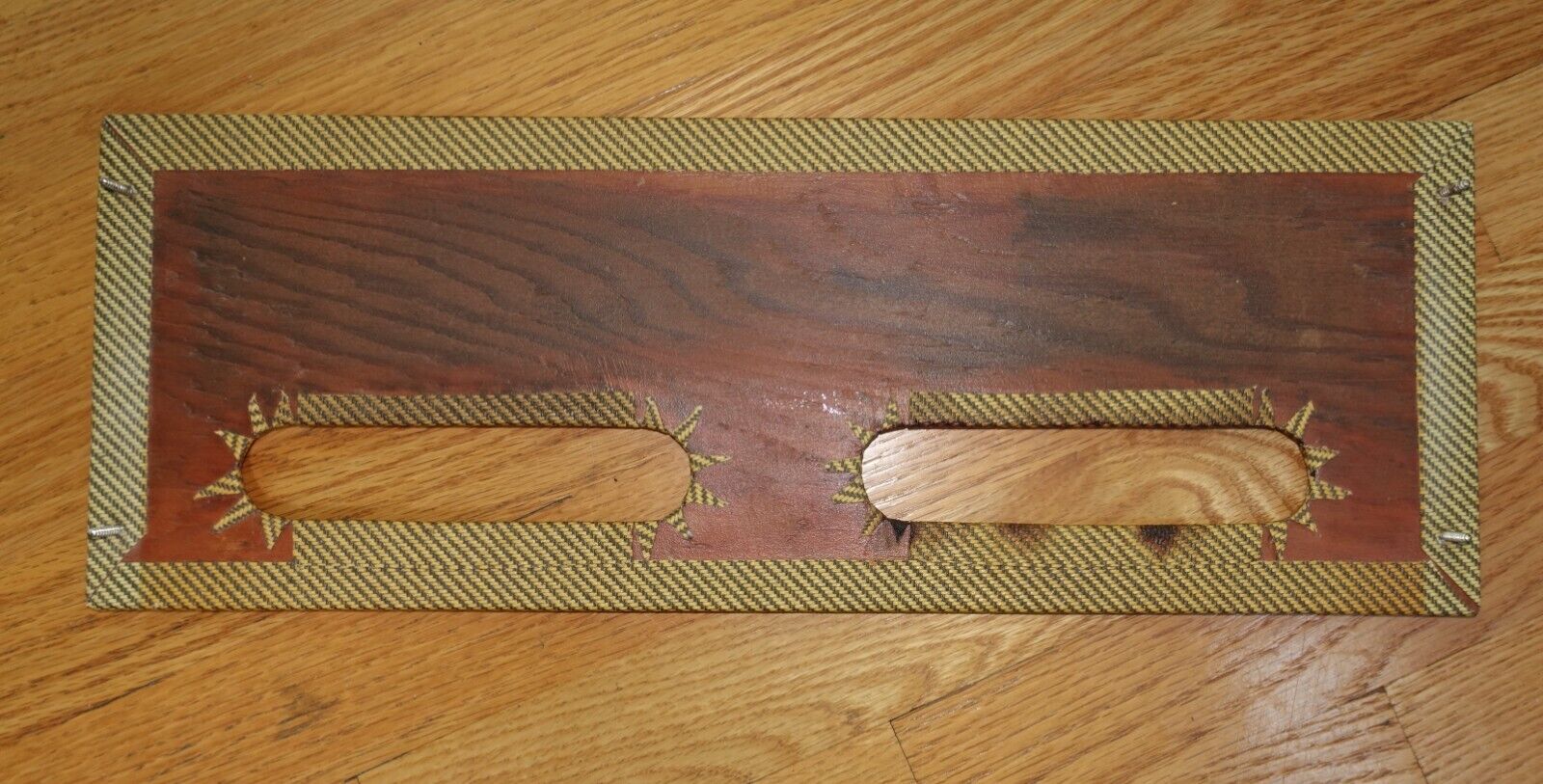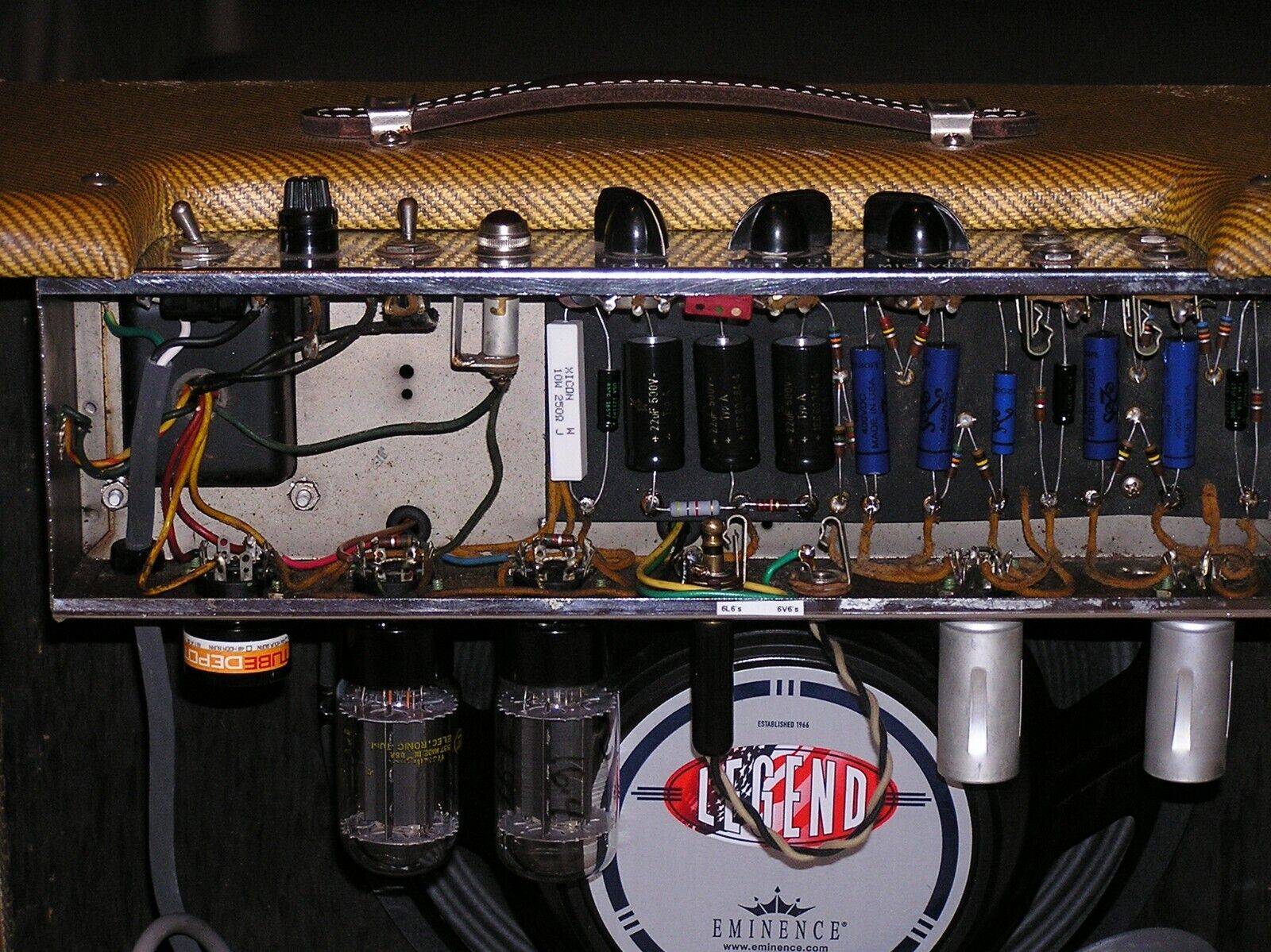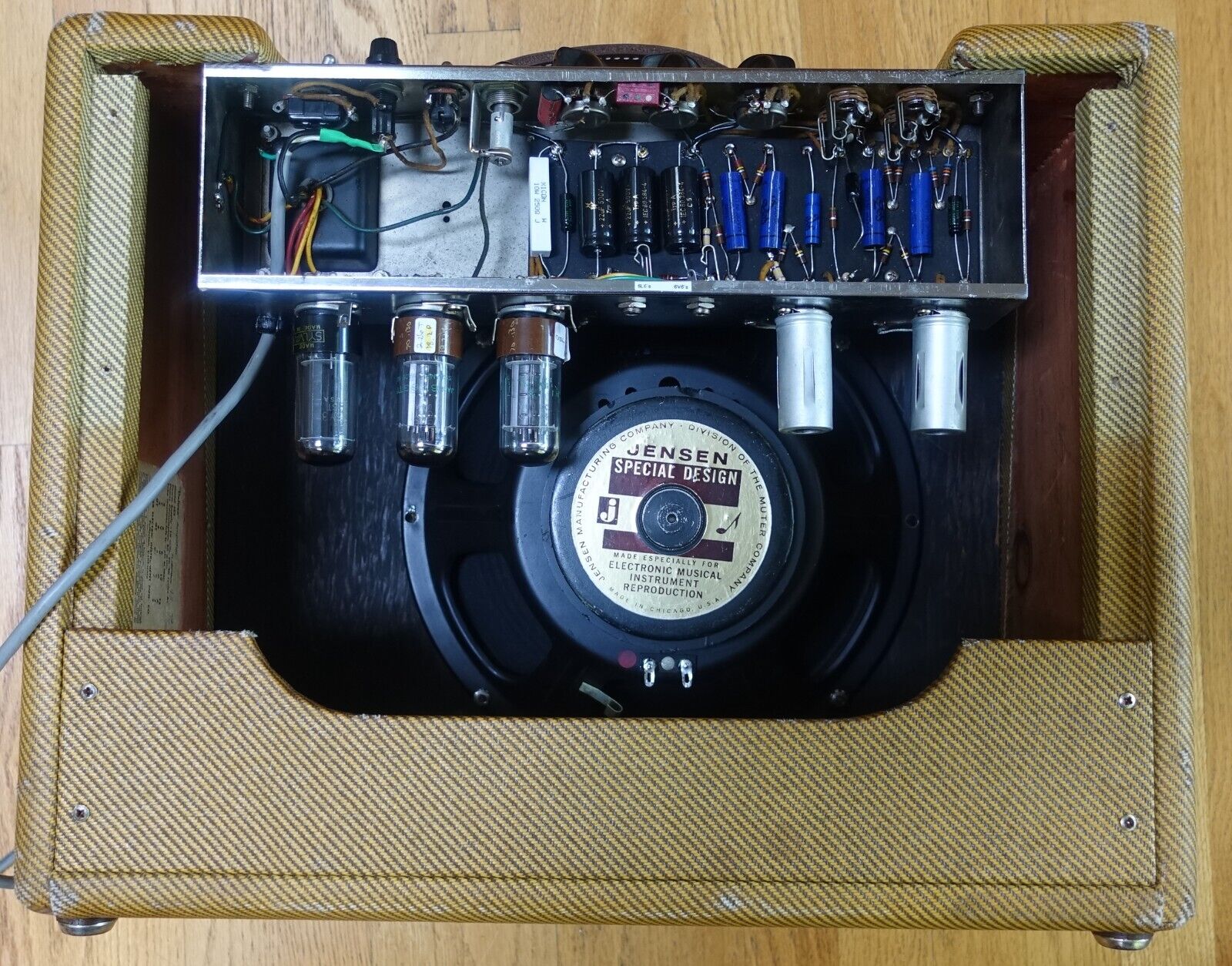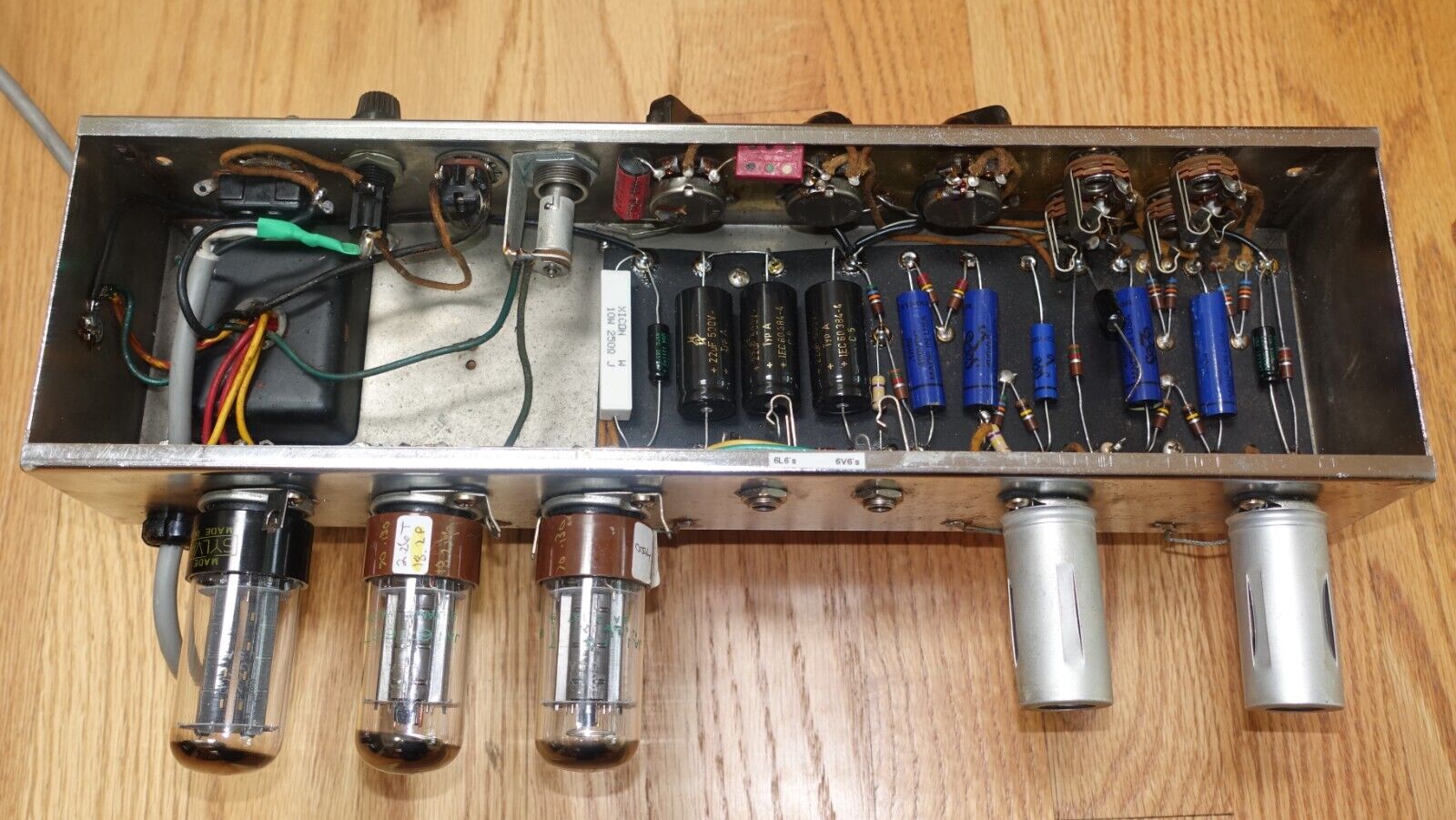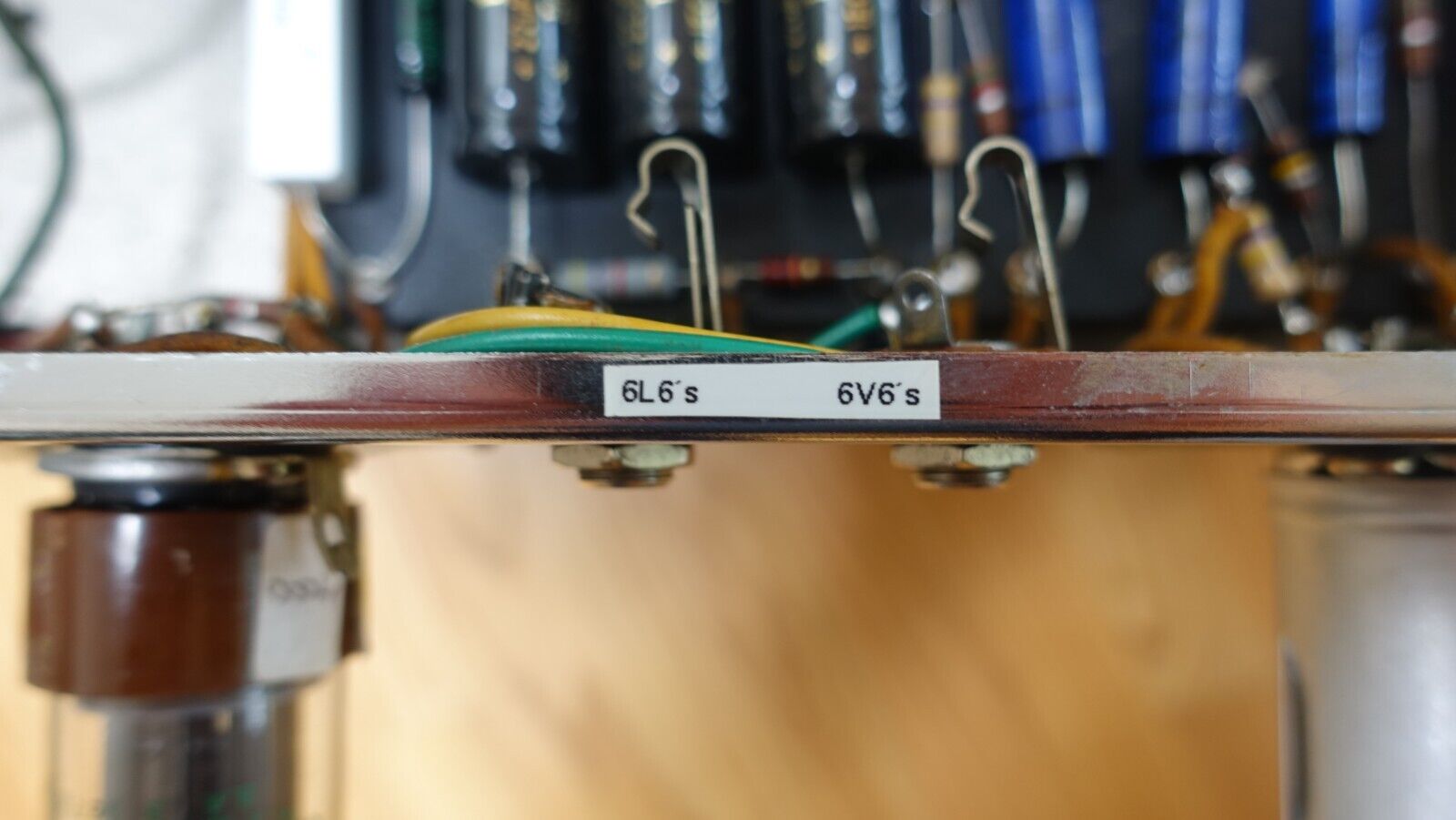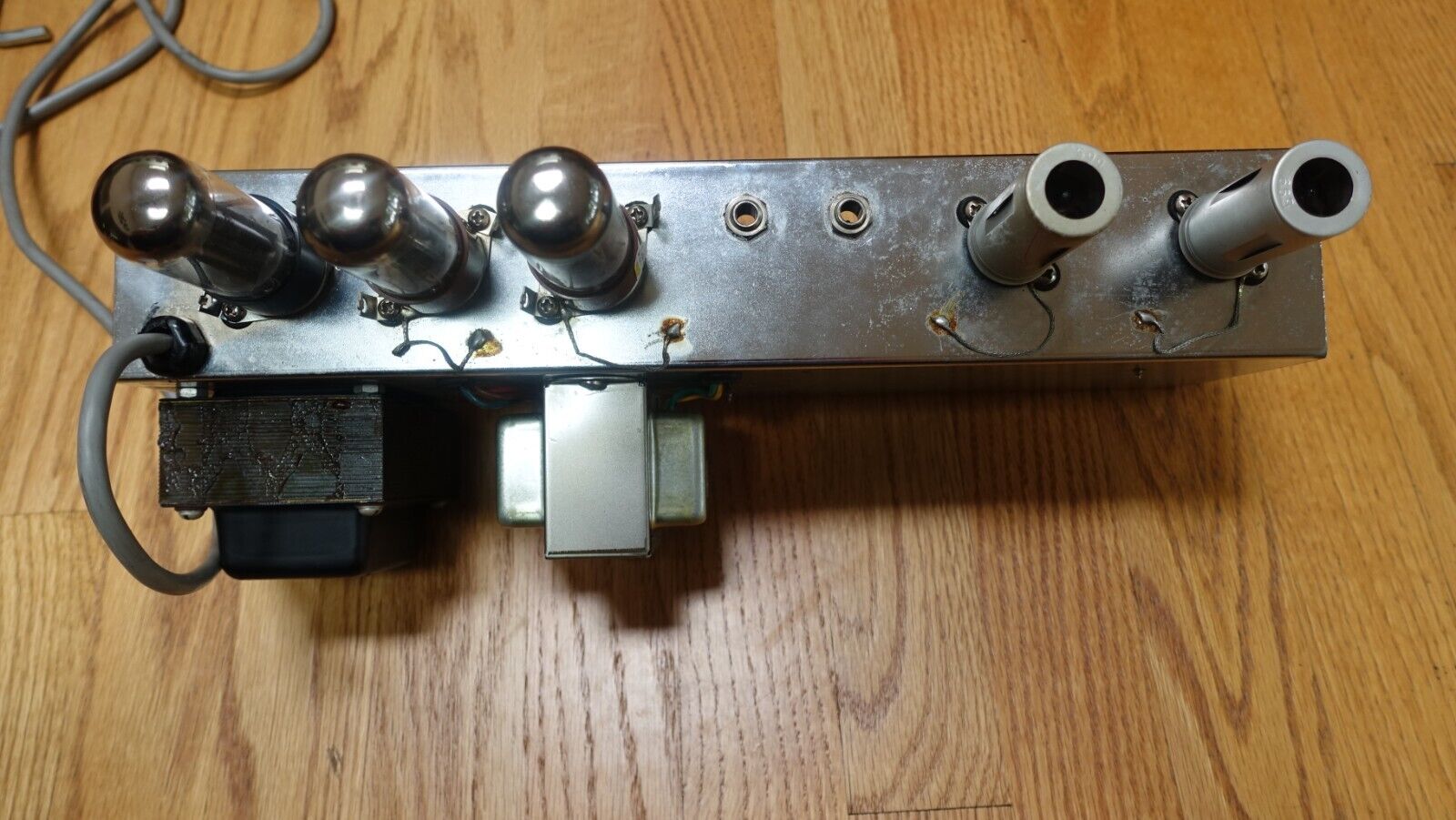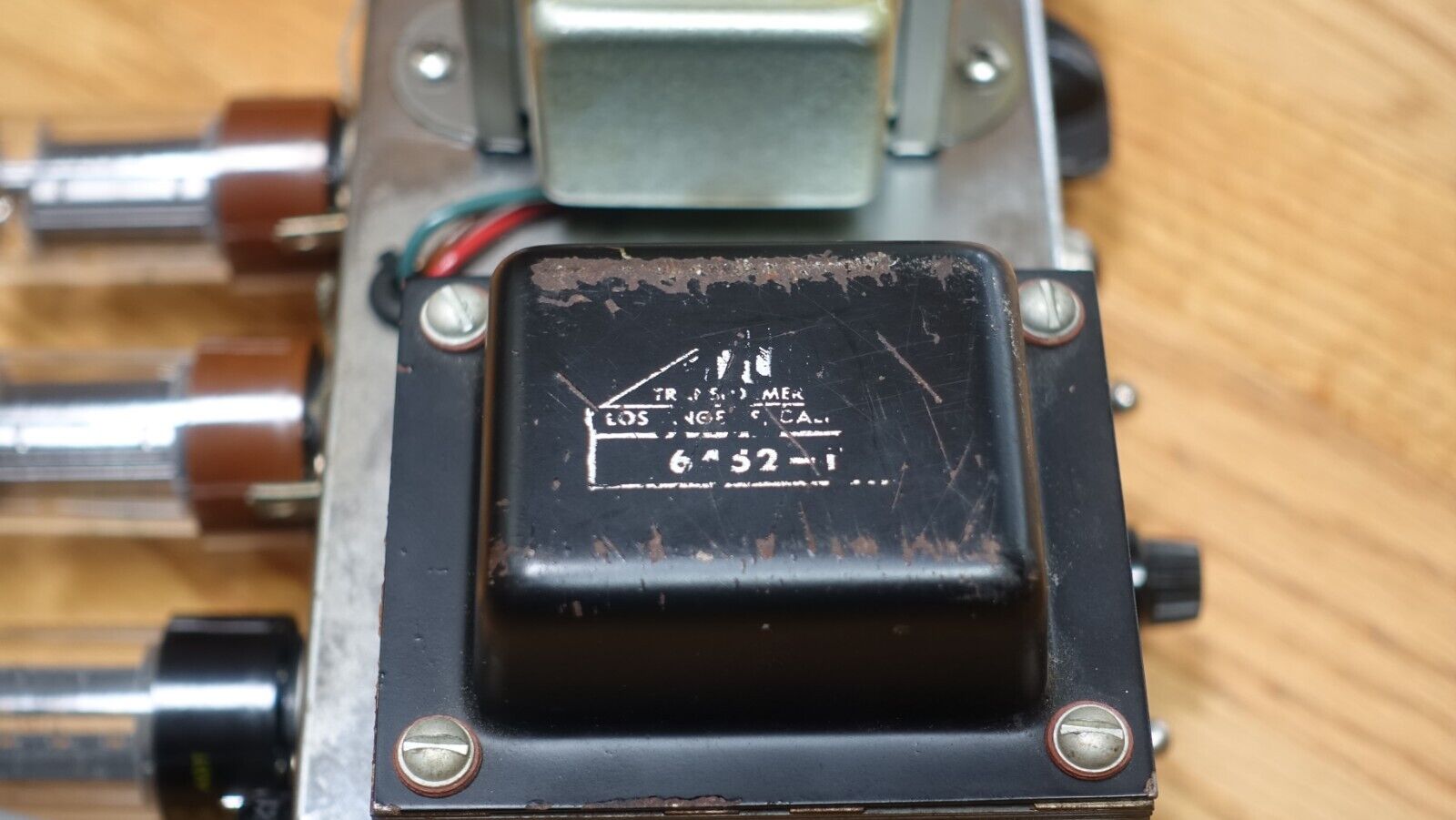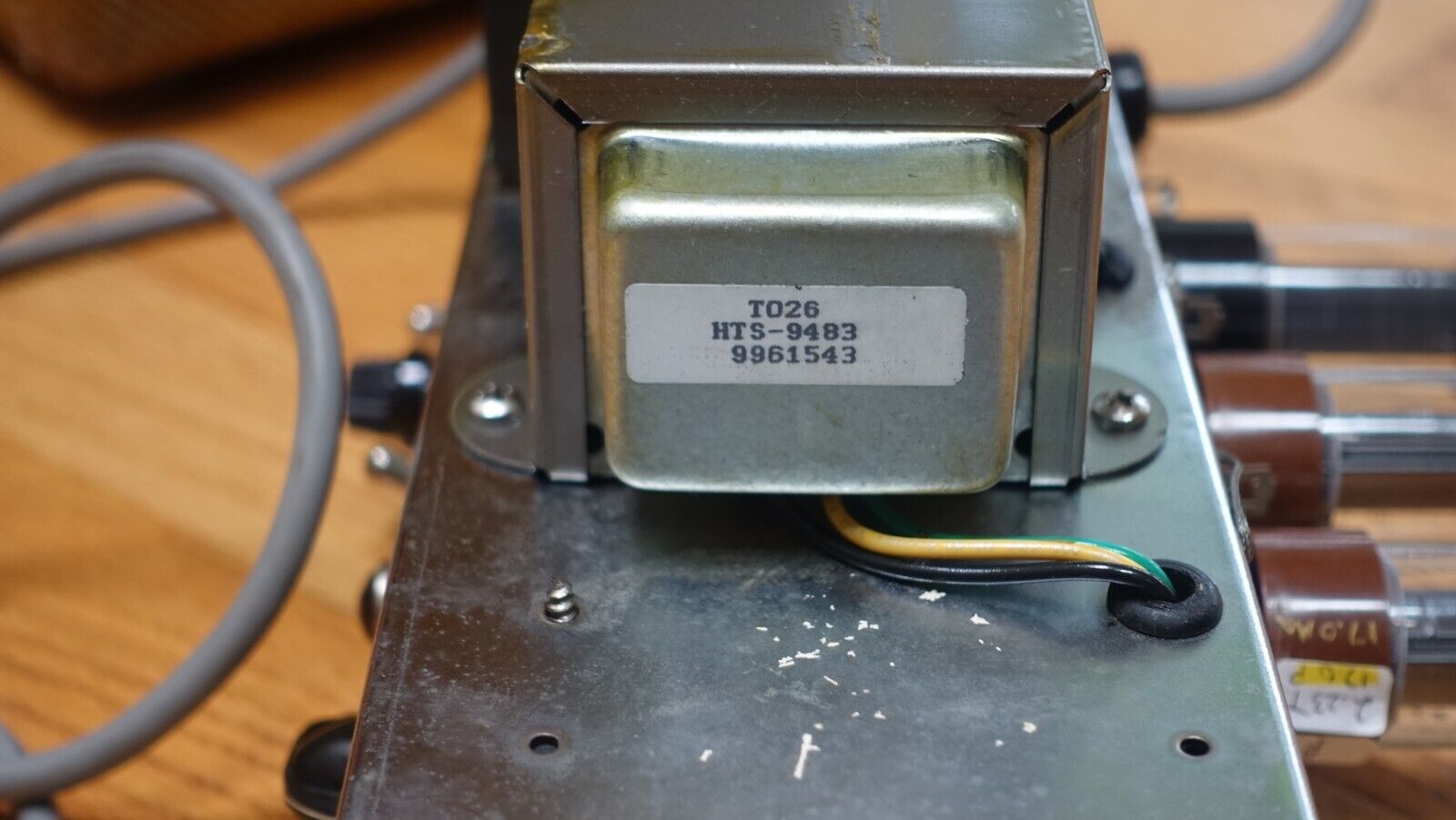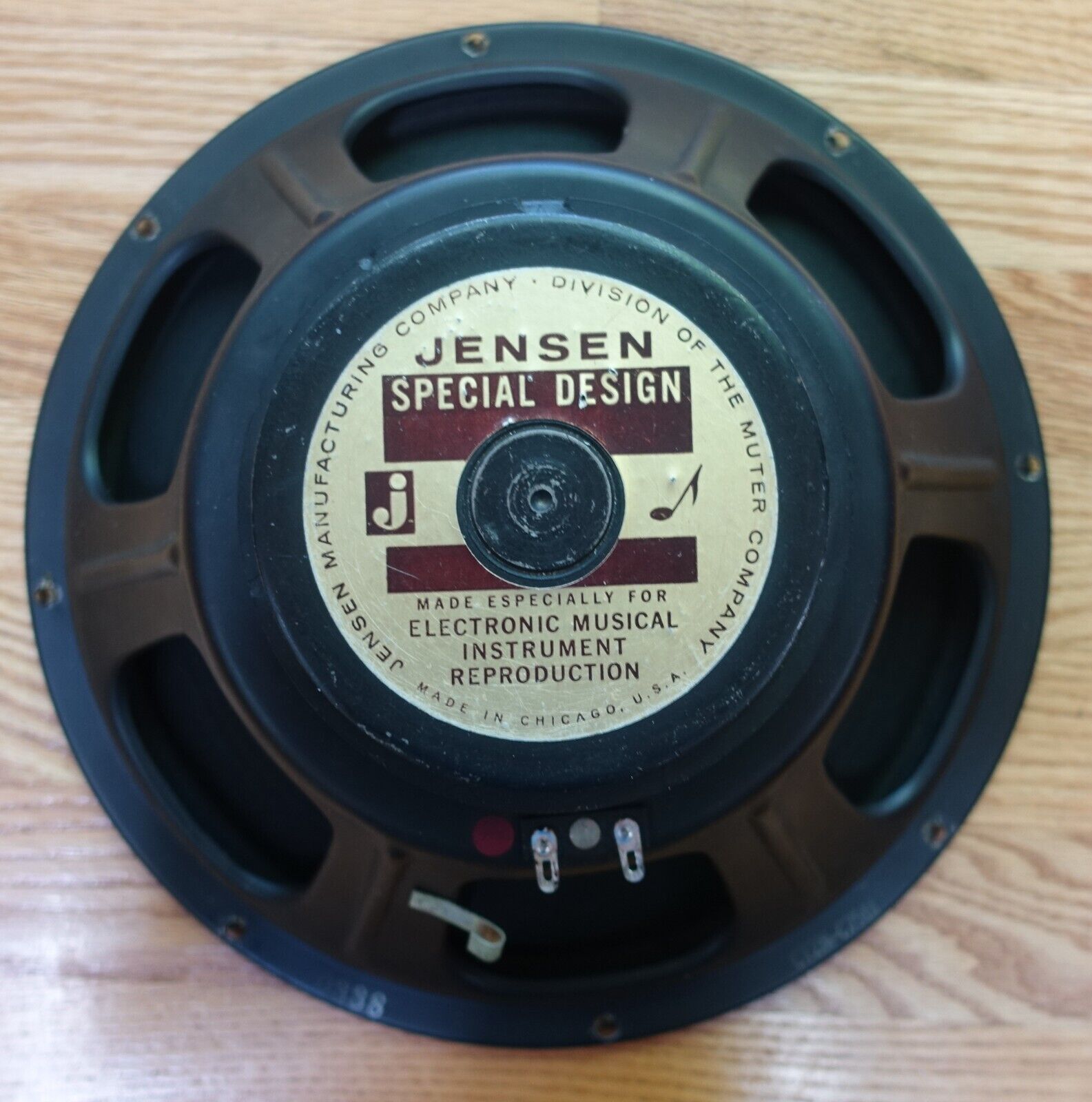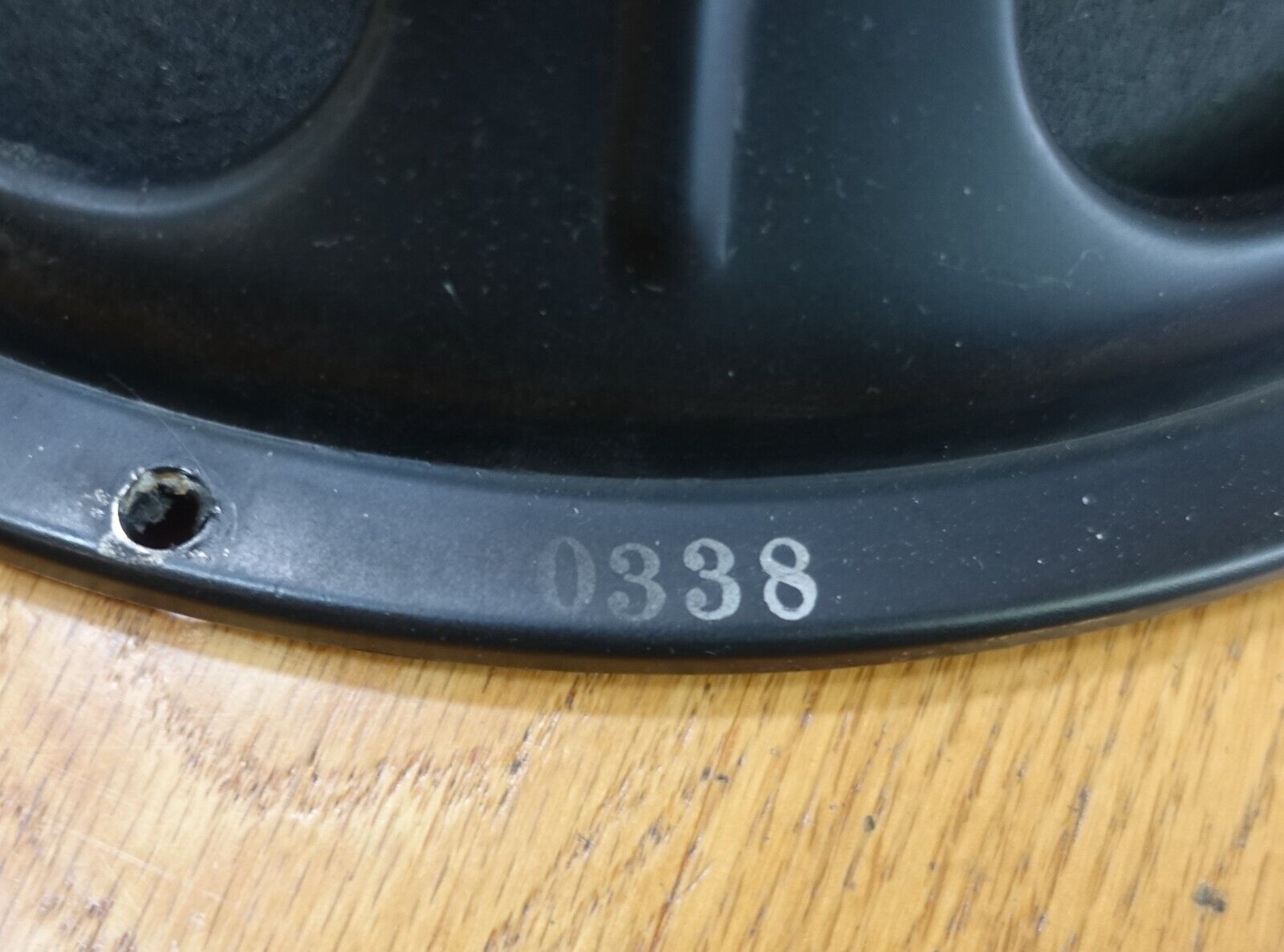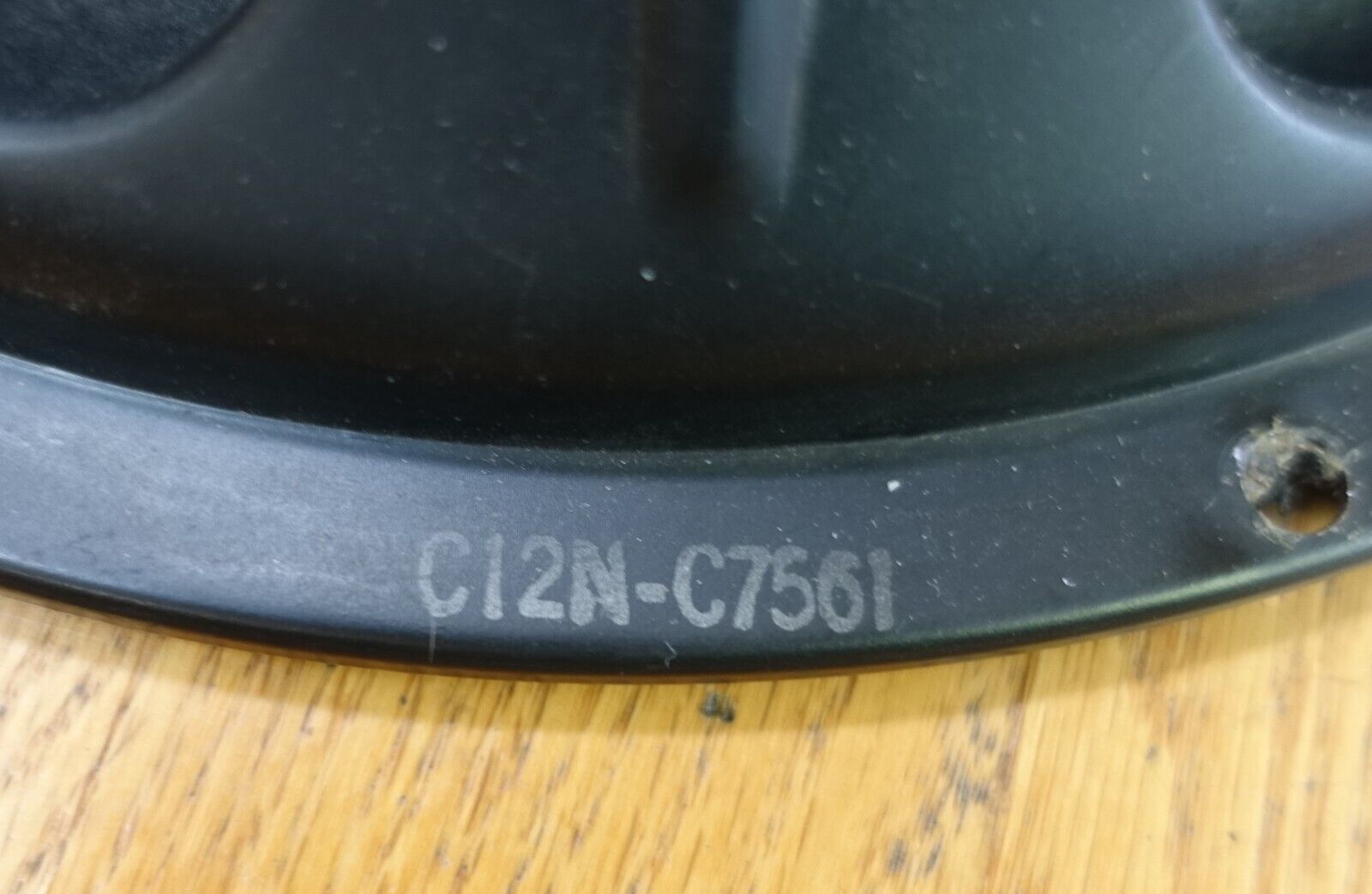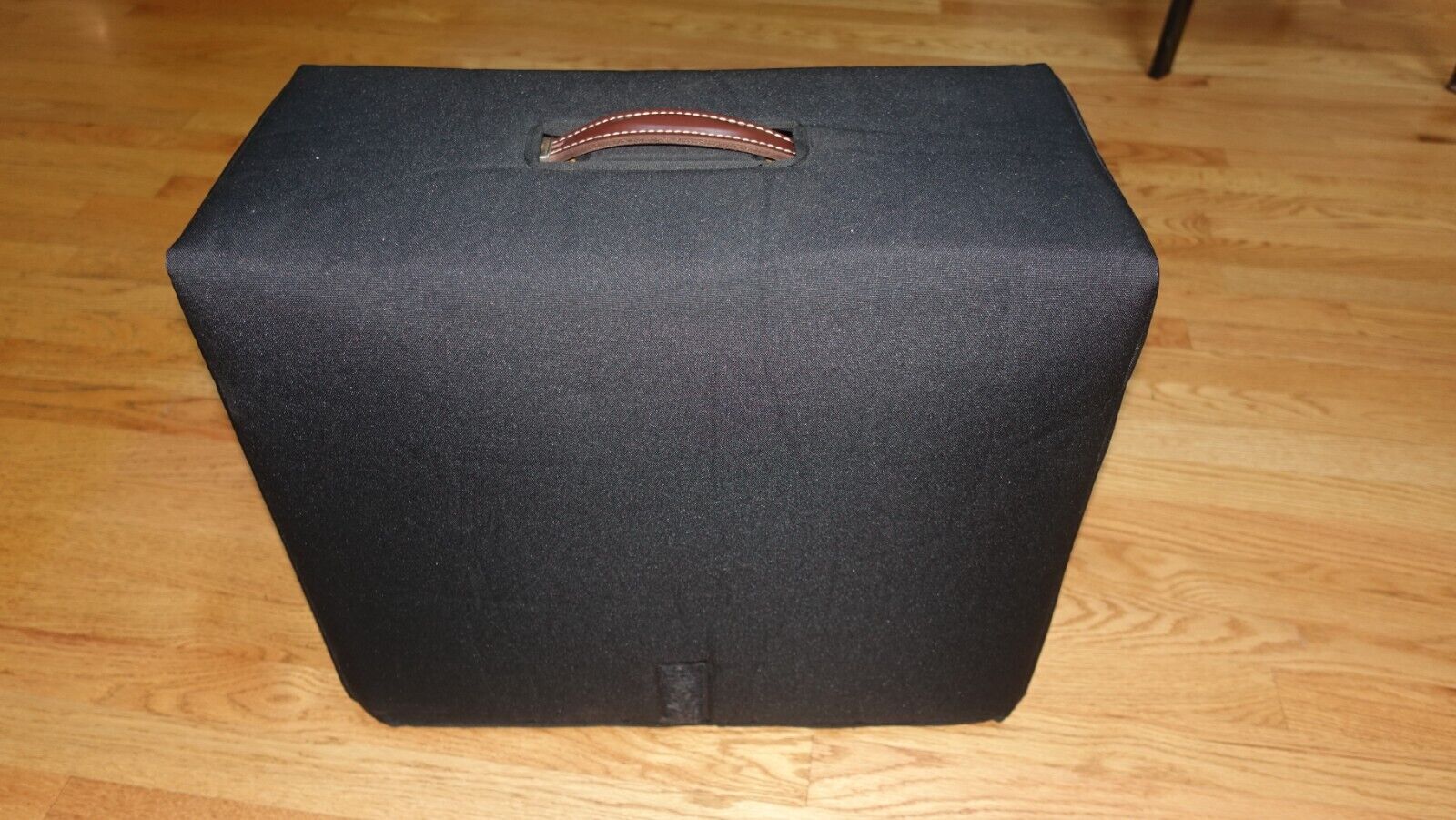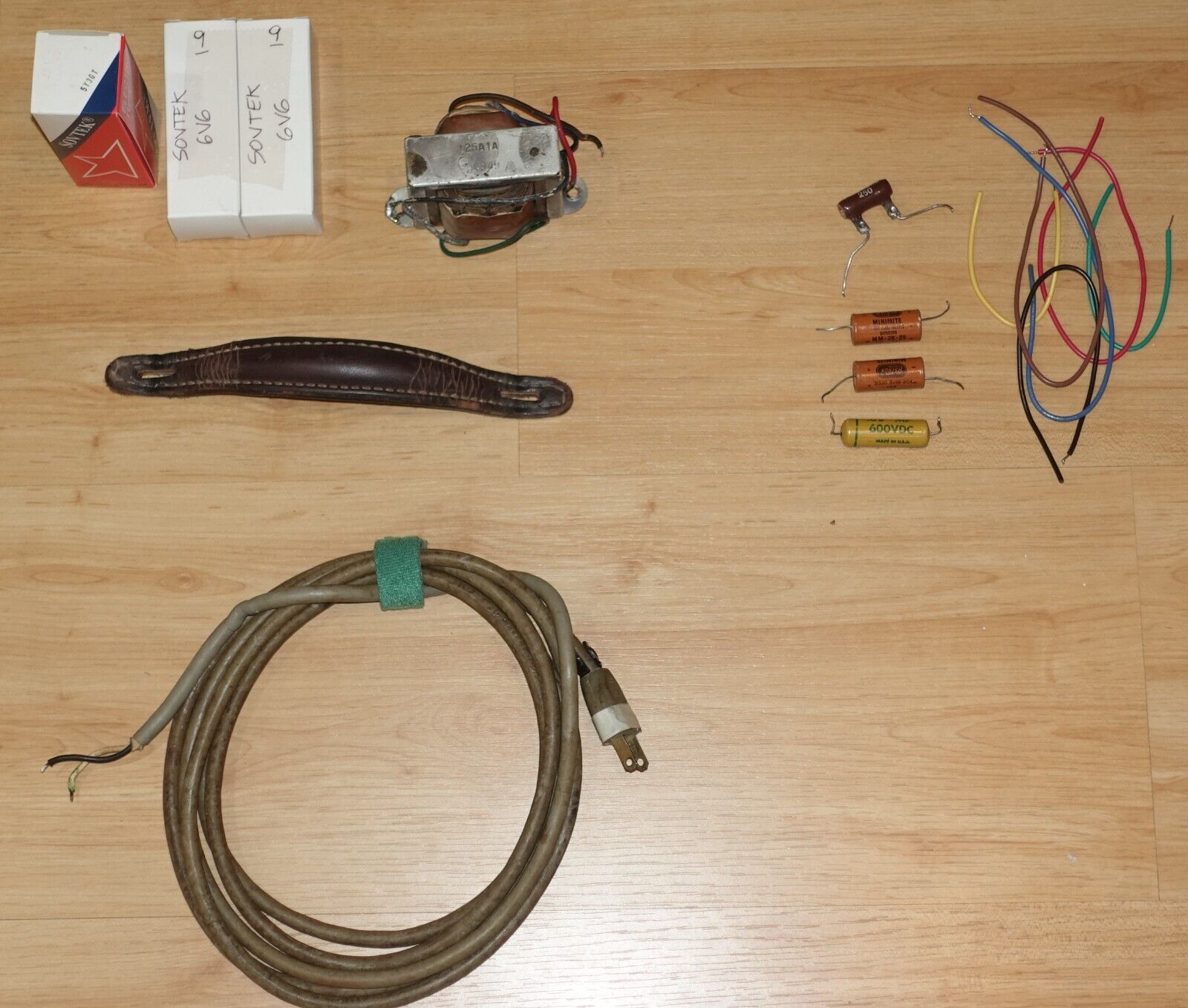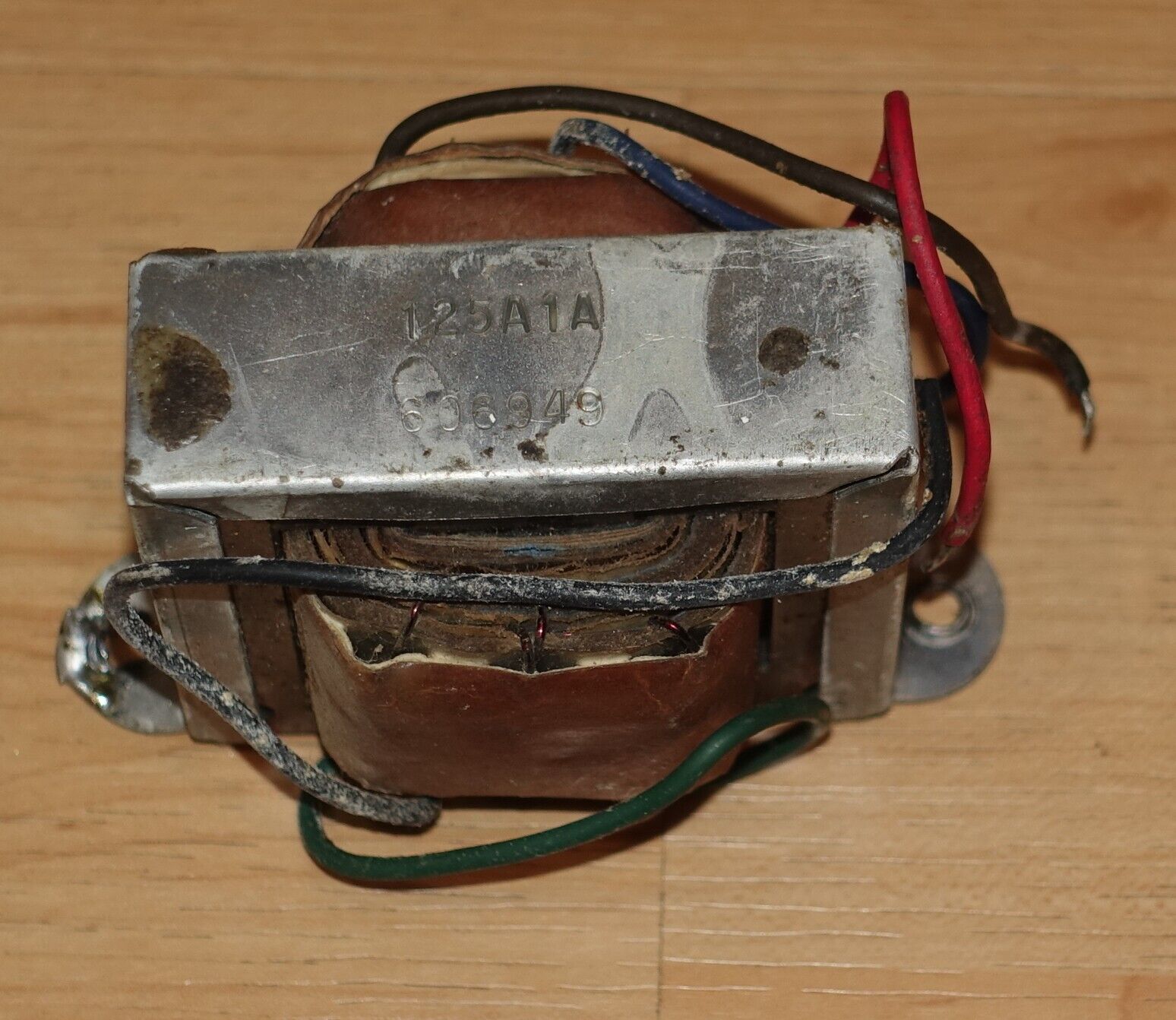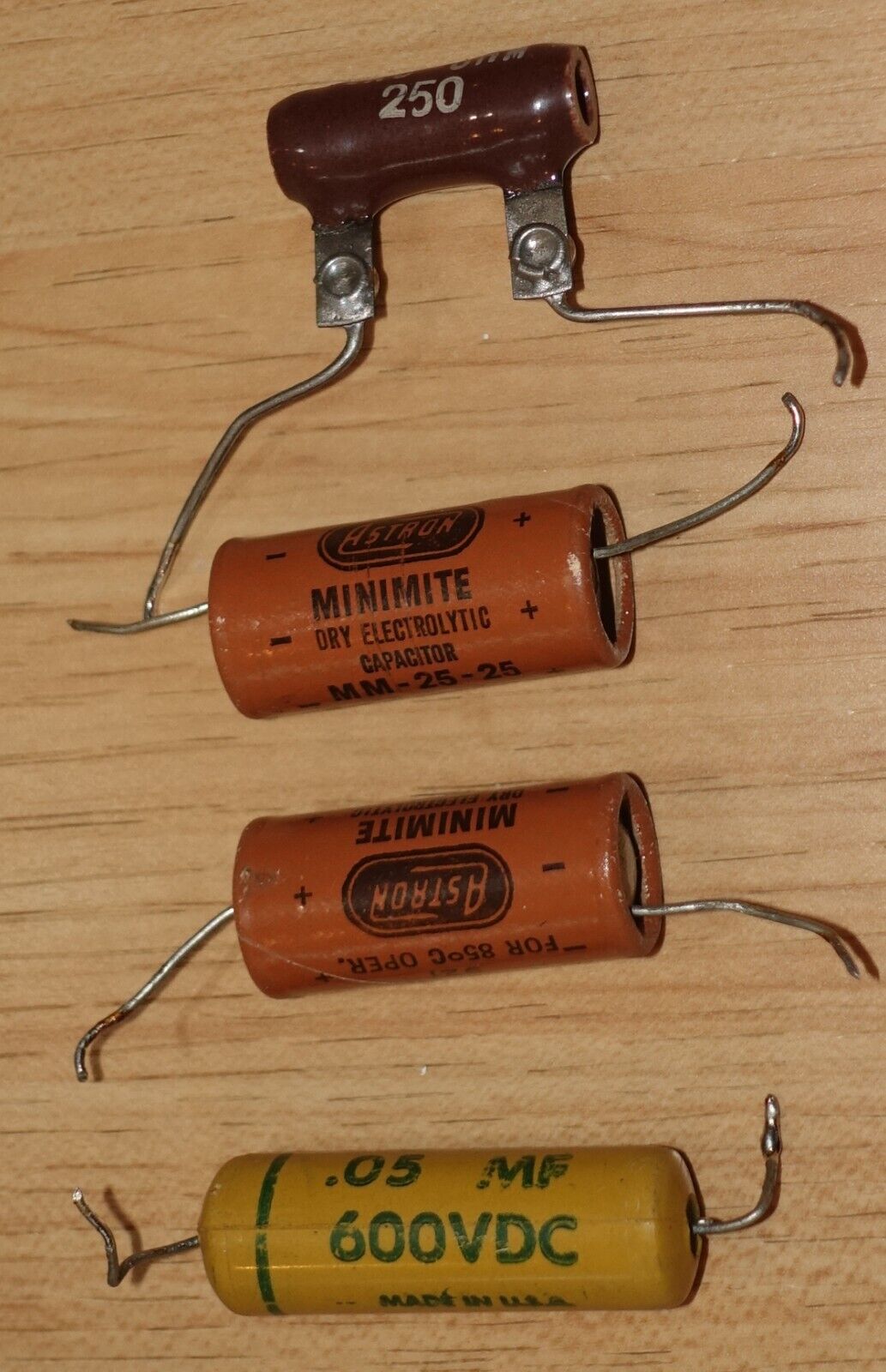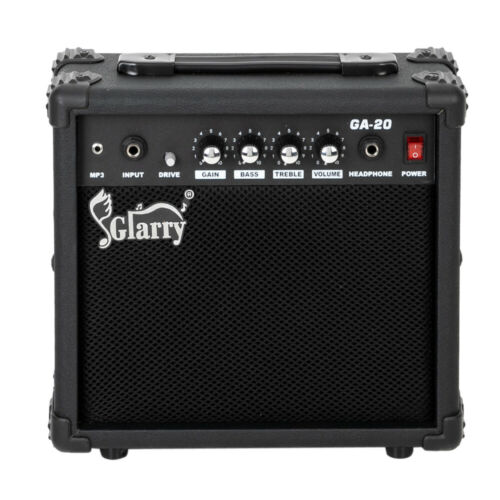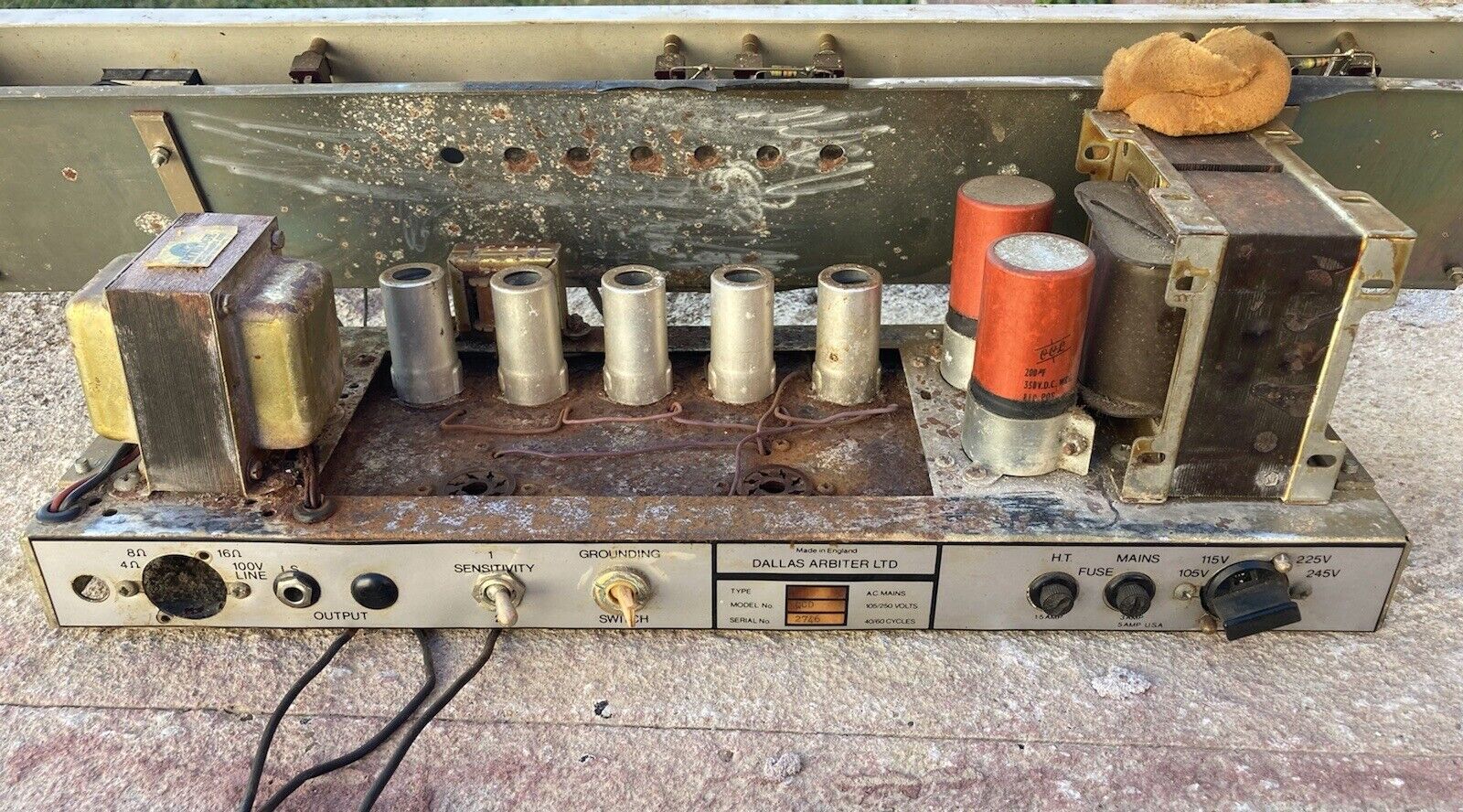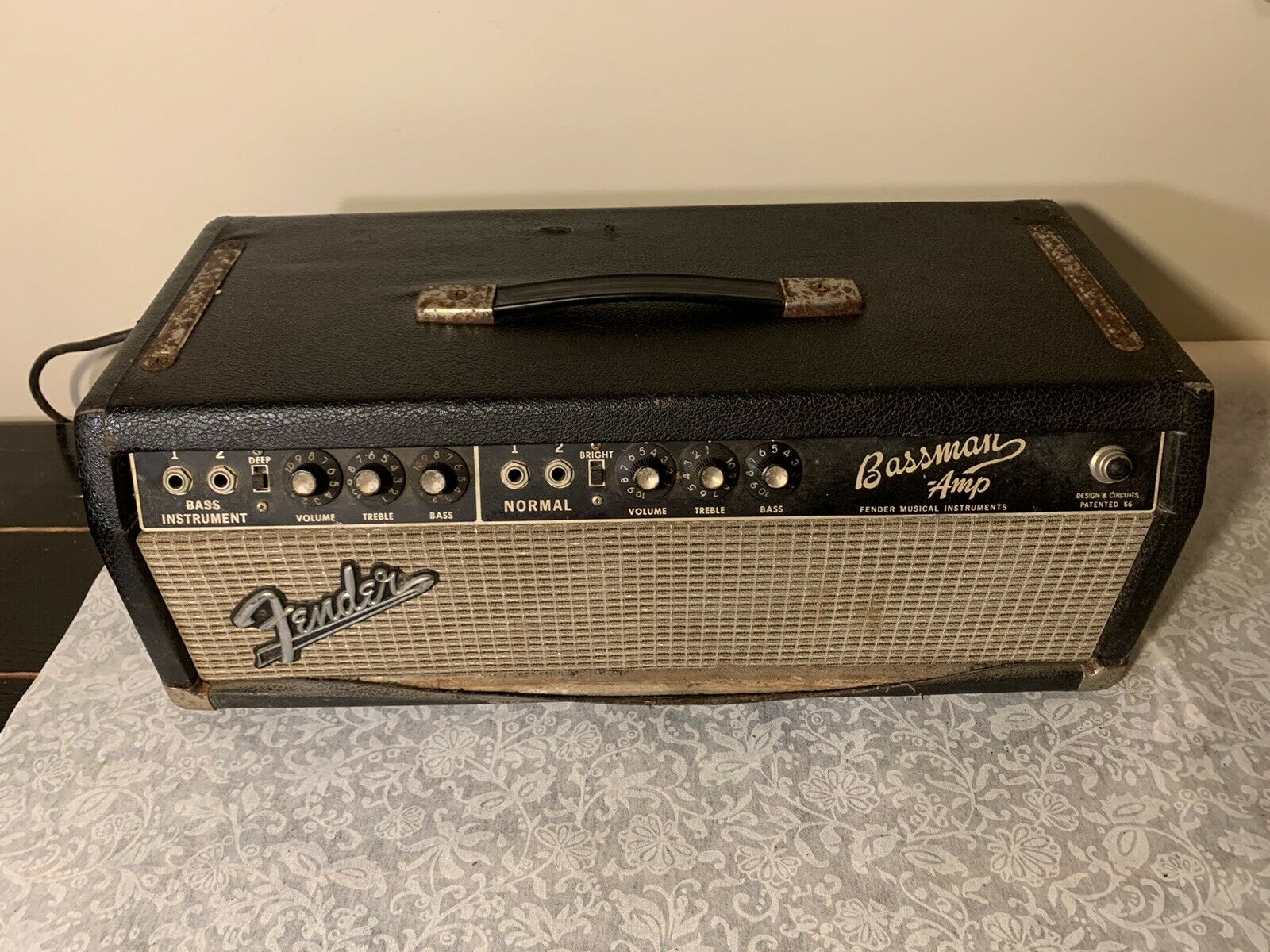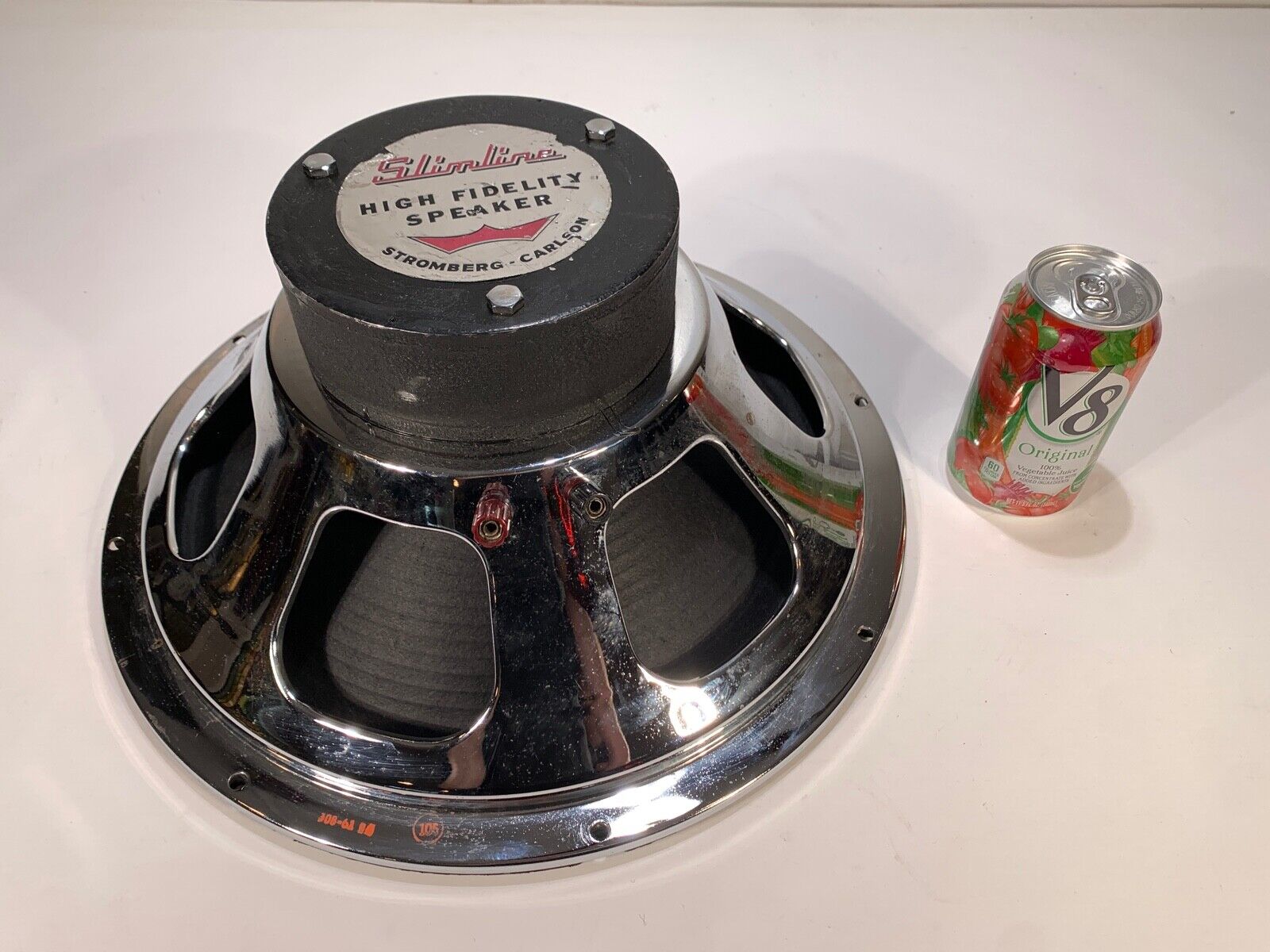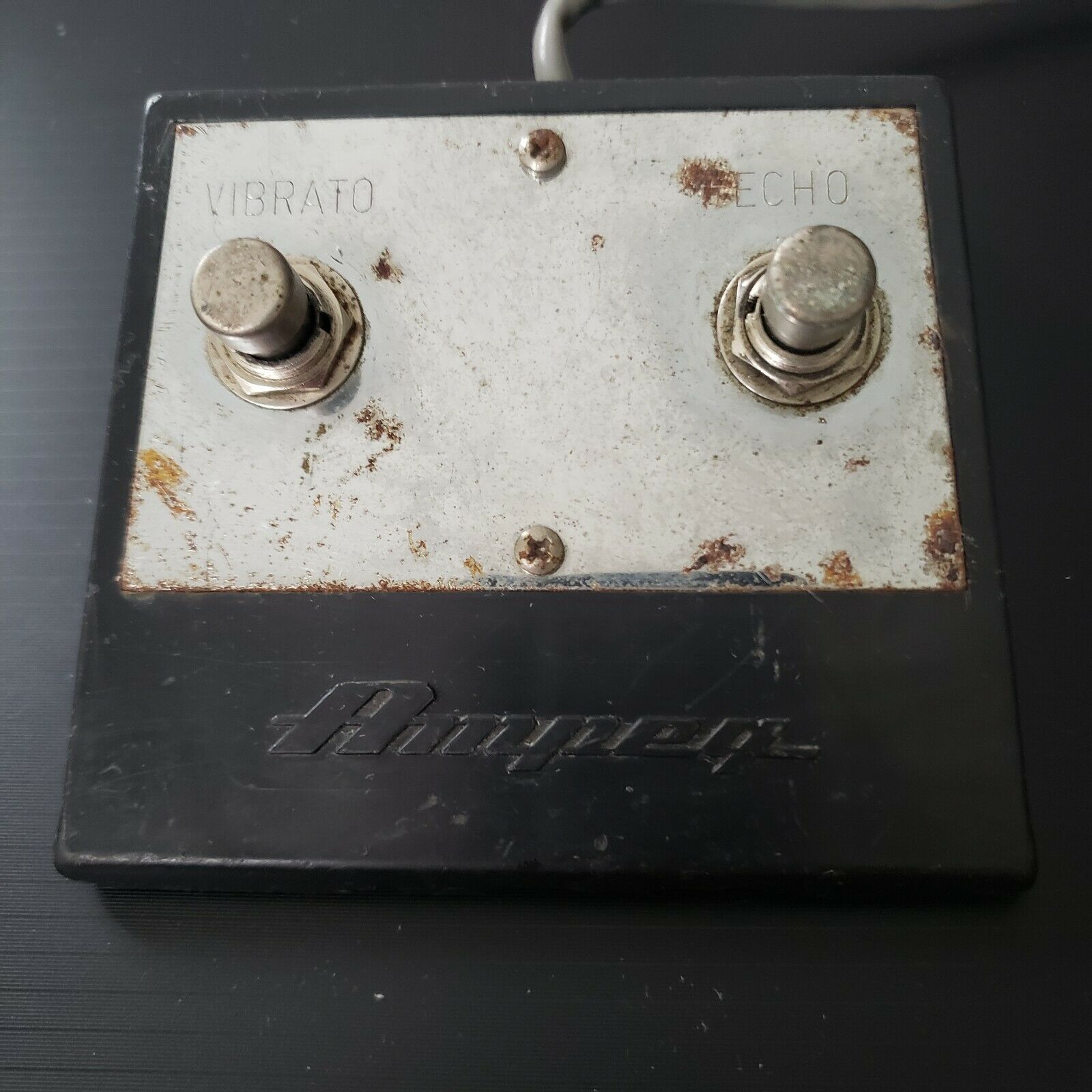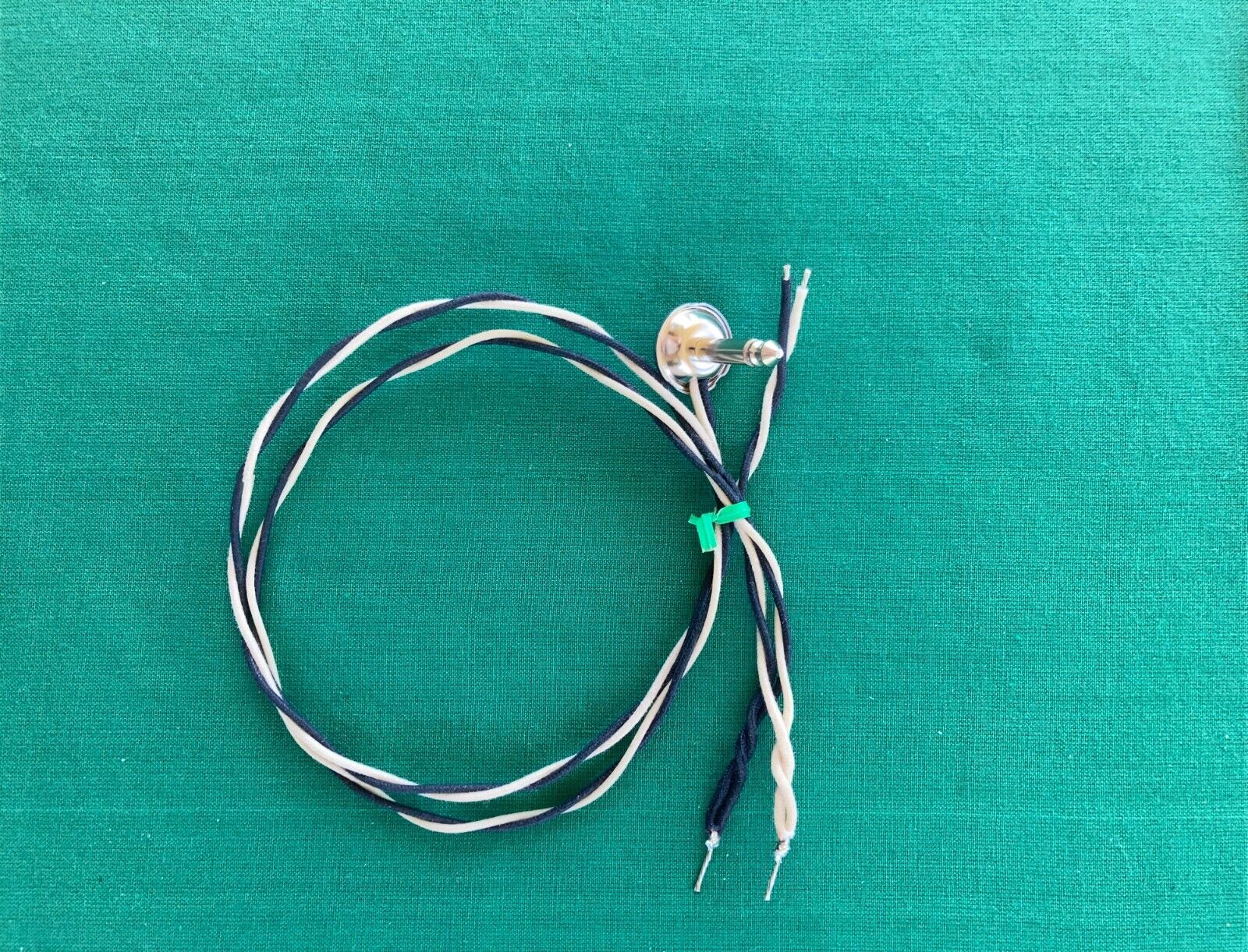-40%
1960 Fender 5E3 Tweed Deluxe Narrow Panel
$ 2373.35
- Description
- Size Guide
Description
1960 Fender 5E3 Tweed Deluxe Narrow PanelThis is the Tweed Deluxe that was featured in the October 2014 Issue of the ToneQuest Report.
I purchased it from the Editor, David Wilson in September of 2015 – and we miss David, a lot…..
I am selling this reluctantly, but I haven’t used it in over a year, and that’s a
real
shame.
It deserves to be played, so I am making it available to you..!!
O
riginal Stackpole pots which date to the 6th week of '60.
The original
transformers
are intact, with a Triad power transformer and a Schumacher output transformer, dating to the 24th week of 1960.
My tech installed a modern after-market output transformer - however,
the original
Schumacher
is still in good working order, and will be included in the sale.
The
speaker
is an
early 60s
Jensen C12N with a very clean frame and a recent re-cone.
It’s not original, but it is correct for the period
(Tweed Deluxes typically came with a Jensen alnico speaker, as you probably know)
.
It retains the original speaker harness with cloth covered wire and a replaced military grade 1/4" plug as well.
The chrome on the chassis is incredibly clean, still shining, unlike most Tweeds,
with all of the original white text present along with the stock chicken-head knobs.
It was re-covered by Gregg Hopkins of Vintage Amp Restoration, a recognized expert in tweed amp re-covers.
Both back panels are original (re-covered, but original), as is the oxblood grill cloth
with gold stripe
.
The re-covered tweed features light ambering, with some minor requisite scuffing on the edges of the cabinet to confirm the “aged/worn” appearance,
and some staining and wear on the lower corners (Gregg really knows what he’s doing).
If you didn’t know that it was a re-cover, it would be very difficult to tell..!
I installed a very nice after-market leather handle to eliminate additional wear on the handle that came with the amplifier – and that first handle is included in the sale. However, there’s no way to know if it actually is the original leather
handle.
The tube chart is intact and crisp and thankfully the chassis itself retains the identical "JJ" stamp, translating to October of 1960.
My amp tech also customized it at my request –
you can use
either
6L6 or 6V6 tubes depending on your playing requirements
.
Simply move the speaker output cable to the corresponding speaker Output jack, and change the rectifier. The two speaker outputs connect to the circuit according to which power tubes you use.
Each speaker output is labeled (see photo).
If you want to use 6V6s (Sovtek 6V6 power tubes, matched pair included), then you simply connect the speaker cable to the speaker output jack labeled 6V6 and install a rectifier tube (Sovtek Rectifier 5Y3GT included).
If you want to use 6L6s (JJ 6L6 Power tubes included), then you use the 6L6 speaker output jack and install a solid state rectifier (Ruby Solid State rectifier also included).
The amp is cathode-biased, so there’s no need to re-bias when changing power tubes.
Th
is
mod is completely reversible, but I
strongly suggest that you
at least try
using
this setup to take advantage of
the amplifier’s versatility.
The back panel covers the labels, so you just switch speaker outputs while you have the back panel off to change the tubes.
The amp cabinet is protected by a
very nice
heavy duty padded Tuki cover.
Here are Services and Parts that my technician applied to this amplifier
:
•
Replaced preamp cathode bypass capacitors
•
Replaced output tube cathode bias resistor for 10 watt for safe 6L6 dissipation
•
Removed polarity capacitor, installed grounded power cord
•
Removed output transformer, installed new output transformer
•
Clean, tensioned, tightened all sockets, jacks, and pots
•
Tested amp in all configurations, different preamp tubes, rectifiers, and combinations
•
Extensive burn-in and play tested
Parts:
•
HTS 9483 Deluxe output transformer:
•
2 x Sprague Atom 25uf @ 50v: .66
•
250 ohm 10 watt wire-wound: .69
•
Jensen C12N:
•
Grey 8’ Vintage Style grounded power cable: .25
RE-WIRED GROUND SCHEME:
Disabled the brass plate ground scheme and the jumpers to the eyelet board and reconfigured the ground scheme to reduce grounding points to:
- One ground point for the output cathodes, HT center tap, heater supply, and grounds for the plate and screen grid nodes of the power supply, and phase inverter ground reference
- One ground point the all the preamp cathodes, grid references, volume and tone pots, preamp power supply, and all remaining grounding points.
I have many more pictures. Let me know if you are interested, and I will send the rest to you via the WeTransfer portal.
All I would need is your email address.
OK, that’s it. It’s not for purists or collectors, but if you are an actual guitar player, this may be the amplifier you’ve been waiting for.
